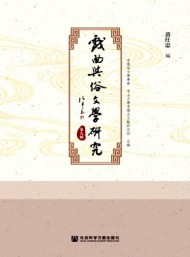谚语范文10篇
时间:2023-03-30 03:39:44

谚语范文篇1
关键词:英语谚语;翻译;技巧
1引言
谚语民俗文化的结晶,是人类智慧的火花。英语是一种高度发展的语言,在其漫长的发展过程中,吸收了欧洲多个民族语言的精髓。英语谚语更是博采众长,特别是从古希腊、罗马文化及《圣经》中吸收了大量的营养。英语国家的作家、思想家如培根、莎士比亚、蒲柏和富兰克林等更是为这座宝库增添了许多丰富多彩的内容。但是,英语谚语的主体还是来自民间。那些无从考证出处而又家喻户晓的谚语是一代代普通民众长期积累、流传下来的思想火花与语言经典。英语学习者通过英语谚语可以浏览英语国家思想与文化的精华,领略英语语言的精悍与传神。优美的译文不仅帮助读者更好地理解英语谚语的含义,而且会带您走进一座智慧的殿堂、语言的宝库。
2英语谚语的特点
英语谚语是经过长时间的使用而提炼出来的固定短句,是人民智慧的结晶。英语谚语大都具有鲜明的形象,适宜于用来比喻事物,因而往往带有浓厚的民族色彩和地方色彩。英语谚语有的意思明显;有的富予含蓄,意在言外,可引起丰富的联想;有的可能包含几个意思,必须根据上下文的具体情况来明确它的意义。英语谚语既是语言中的重要修辞手段,同时其本身也是各种修辞手段的集中表现。不少英语谚语前后对称,音节优美,韵律协调。
3英语谚语的翻译策略
由于英语谚语具有这些特点,翻译时就应当尽量保持这些特点。英语谚语不仅大量出现在文艺作品里,在政治和科学论文中也同样经常遇到。英语谚语翻译的好坏对整个译文的质量有直接的影响。因此,如何处理英语谚语是翻译中的一个极为重要的问题。译者除了忠实地表达原文习语的意义外,还应尽可能保持原文习语的形象比喻、丰富想象、修辞效果及其民族色彩和地方特色。英语谚语的语的英译汉有三种主要方法。
3.1直译法
“直译是把忠实于原文内容放在第一位,把忠实于原文形式放在第二位,把通顺的译文形式放在第三位的翻译方法。”(许渊冲,1984)即直译法是在不违背译文语言规范以及不引起错误的联想的条件下,在译文中保留英语谚语的比喻、形象和民族、地方色彩的方法。例如:
Afterastormcomesacalm.风暴之后是宁静。
Afterraincomesfairweather.雨过天晴。
Allthingsaredifficultbeforetheyareeasy.万事开头难。
Asyousow,soshallyoureap.自作自受。
Asamansows,soheshallreap.种瓜得瓜,种豆得豆。
Thestyleistheman.文如其人。
Fishintroubledwaters.浑水摸鱼。
Theremembranceofthepastistheteacherofthefuture.前事不忘,后事之师。
3.2意译法
“意译却是把忠实于原文的内容放在第一位,把通顺的译文形式放在第二位,而不拘泥于原文形式的翻译方法。”(许渊冲,1984)当直译有困难或勉强译出而读者无法理解时,一般应采用意译法。意译主要是指在翻译时抓住内容和喻义这一重要方面,牺牲形象、结合上下文比较灵活地传达原意。例如英语谚语Ahorsestumblesthathasfourlegs,若将其直译成“有四条腿的马会失蹄”,这自然会给听者的理解带来困难,甚至会产生一种莫名其妙的感觉。对于这类谚语的翻译,应采取意译法,以完全不同的词语将甲方语句的寓意准确地传达给乙方。如果我们将上例Ahorsestumblesthathasfourlegs译成“人非圣贤,孰能无过”或“金无足赤,人无完人”,不失为成功的处理方法,汉译后,其形虽变,然其意依存。以下各例谚语的翻译均体现了“形相远而意相近”的翻译的原则:
Beggarscantbechoosers.饥不择食。
Thebestfishare(或swim)nearthebottom.好鱼居水底。/有价值的东西不能轻易得到。
Thebestfishsmellwhentheyarethreedaysold.再好的鱼三天也要变臭。/久住招人嫌。
Buttertobutterisnorelish.千篇一律的东西令人生厌。
Carekilledacat.忧虑伤身。
Thechildisfatherof(或to)theman.三岁看到老。
ClawmeandIllclawthee.投之以桃,报之以李。
Aclosemouthcatchesnoflies.口紧不招祸。
Thecobblershouldsticktohislast.各守本分。
Thedarkesthourisnearestthedawn.接近成功时最艰苦。
3.3同义谚语套用法
有的英语谚语和汉语同义谚语在内容和形式上都相符合,双方不但有相同的意义和修辞色彩,并且有相同的或大体相同的形象比喻。对于此类谚语可采用“同义谚语套用法”。
Practicemakesperfect.熟能生巧。
Seeingisbelieving.眼见为实。
Putthecartbeforethehorse.本末倒置。
Diamondcutdiamond.强中更有强中手。
Giftsblindtheeyes.拿了手短,吃了嘴软。
Thereisnosmokewithoutfire.无风不起浪。
Anewbroomsweepsclean.新官上任三把火。
Dontbitethehandthatfeedsyou.不要恩将仇报。
Thereareplentyoffishinthesea.天涯何处无芳草。
Killtwobirdswithonestone.一箭双雕。/一石双鸟。
Speakofthedevil(andhewillappear).说到曹操,曹操到。
3.4增词加注法
有些英语谚语带有浓厚的民族色彩、地方色彩或具有典故性质,汉译时必须加注才能把意思交代清楚愿意,这种翻译法叫做增词加注法。例如,仅仅把CarrycoalstoNewcastle译为“向运煤,多此一举”是不够的,因为读者不一定理解“纽卡索”的含义,必须用增词加注法翻译为“向(煤区)纽卡索运煤,多此一举。”或加注,说明“纽卡索”是英国的一个产煤中心,往那运煤,多此一举。
4结语
谚语作为一种以简单通俗的语言来表达深刻道理的语句,常为人们所引用。在国际交往中,人们喜欢引用本国或外国的谚语。例如美国前总统里根1984年4月访华时充满深情地说:Sincewearrivedthegraciousnesswithwhichwehavebeenreceivedhasbeenheartwarming.AChineseproverbbestdescribesmyfeeling:“Whenthevisitorarrives,itisasifreturninghome.(宾至如归)。同年11月访华的挪威首相Willoch在欢迎宴席上说道:AlthoughIhavetriedtofollowthedevelopmentsinyourcountryfromafar,IamveryconsciousofthetruthoftheChineseproverb“Seeingisbelieving(眼见为实/百闻不如一见)”。因此,译者在翻译英语谚语时应用恰当的翻译技巧准确无误传达原文的含义意义重大。当然,掌握了以上四种谚语的翻译方法并不等于找到了一把可以翻译所有谚语的万能钥匙。有些谚语的翻译需要译员“转形解意”,而有些谚语的翻译宜“以不变应万变”,以保其“原汁原味”(梅德明,2008)。
参考文献
[1]张培基.英汉翻译教程[M].上海:上海外语教育出版社,1980.
[2]许渊冲.翻译论集[J].北京:商务印书馆,1981.
谚语范文篇2
关键词:谚语;翻译因素;翻译方法
一、引言
英国作家和哲学家弗朗西斯·培根(FrancisBacon1561-1626)曾经说过:“Thegenius,witandspiritofanationarediscoveredinitsproverbs.”谚语是一个民族天赋、智慧和精神的体现。谚语是语言词汇的重要组成部分,是语言的民族形式和各种手段的集中体现,是语言中的某些部分经过长期反复使用后自然沉积而形成的形式固定,简洁明快,寓意深刻的语言精品。谚语是人类语言文化大树上硕果累累的一枝,是语言白花园中的一朵奇葩。
何为谚语呢?《谚语·歇后语概论》给谚语下了如此定义:“谚语是人民群众生活斗争的经验总结,具有传授经验和教训劝戒功能,流传于人民群众口头的话语”。英语一则谚语告诉我们:“Proverbsarethedaughterofdailyexperience。”(谚语是日常生活的产物)英国搜集家ThomasFuller曾对谚语作过描述:“众多的事理经过煎熬,凝练成寥寥数词,这便是谚语。”英国首相JohnRussel认为谚语是:“众人的智慧,一人的妙语。”
以上观点虽各不相同,但都反映了谚语的特点:1、智慧的闪光2、经验的结晶3、精美的语言4、人生的启迪5、无翼的飞翔6、真实的写照。一般我们对谚语的含义理解为谚语是意义相对完整的句子,是语言中一种重要的熟语。大部分谚语是人民生活经验的结晶。人类智慧的闪光,它启迪人生,指导人们的行为。
学习英语语言不可能不学习英语谚语,但是英语谚语是几千年英美文化的沉淀,特别是英美文化与汉语文化的差异增加了我们学习和理解的难度,尤其是谚语的翻译对于我们正确理解谚语本身的含义及其折射出的民族文化有举足轻重的作用。本人试图从影响英语谚语翻译的因素和英语谚语的翻译方法两个方面对英语谚语的翻译策略做一些浅层次的探索。
二、影响英语谚语翻译的因素
谚语是语言的核心和精华,是人类文明的积淀。谚语的翻译也受到多方面因素的制约,为了能够反映其特有的文化特色,我们在翻译过程中需要从历史背景,地理环境,风俗习惯。宗教信仰,寓言神话等方面全方位考虑影响其含义的因素,正确理解和翻译谚语自身所蕴涵的深刻含义。
历史背景
社会历史的发展对语言的影响是巨大的。随着时代的变化,旧的语言逐渐衰亡,新的语言不断产生。在历史的进程中,谚语好比一面镜子,能清楚地反映其历史的变迁。因此我们在翻译谚语时需要考虑其历史背景,才能正确理解谚语的含义。
公元前55年,古罗马统帅恺撒征服不列颠岛,而英国历史上真正的“罗马人的征服”(RomanConquest)是在公元43年开始的。从此罗马人占领不列颠400年之久。罗马人的文化对不列颠的影响仍留在岛上,在今天的英语谚语中仍然可以找到历史的痕迹。例如:
DoinRomeastheRomansdo.在罗马就要过罗马人的生活。(喻:入乡随俗。)
Romewasnotbuiltinaday.罗马不是一天建成的。(喻:伟业非一日之功。)
AllroadsleadtoRome.条条道路通罗马.(喻:殊途同归。)
这三条谚语足以反映出“罗马人的征服”(RomanConquest)对英语谚语的影响,足以反映出罗马帝国昔日的辉煌。
地理环境
谚语的产生与人们生活和劳动的地理环境习习相关。英国是一个岛国,位于欧洲西部大西洋中的不列颠诸岛上,南面有英吉利海峡(theEnglishChannel),多拂尔海峡(thestraitsofDover),东面隔北海(theNorthSea)。这里的海上运输业和渔业特别发达,因此留下了不少与航海业和渔业有关的谚语。例如:
Allisfishthatcomestohisnet.进到网里的都是鱼。
这条谚语的比喻意义是“任何有用的东西或有好处的东西都来者不拒”,含有贬义。
Neveroffertoteachfishtoswim.不要教鱼儿游泳。
这条谚语的比喻意义是“不要在行人面前卖弄自己”。相当于汉语谚语“不要班们弄斧”。
Hewhowouldcatchfishmustnotmindgettingwet.要想抓鱼就不能怕弄湿衣。
这条谚语的比喻意义与汉语谚语“要吃龙肉,就得亲自下海”的比喻意义相似。
Thegreatfisheatupthesmall.大鱼吃小鱼。
这条谚语形象的描绘出自然界和人类社会的激烈斗争,相互倾轧的状况。
Hethatwouldsailwithoutdangermustnevercomeonthemainsea.谁在航行时不冒险,他就永远不要来到大海上。
这条谚语比喻“不付出就没有收获”,相当于汉语谚语“不入虎穴,焉得虎子”。
大不列颠岛是典型的温带海洋性气候,雨量充沛,风大雾多,降雨量特别大。因此产生了一条谚语:Itneverrainsbutitpours.(不雨则己,一雨倾盆)。
这条谚语的比喻意义是“倒霉的事情总是一起发生的”,相当于汉语成语“祸不单行”的意思。
风俗习惯
风俗习惯是一个地区的人的生活方式,包括的东西很多,涉及生活的各个地域。它既受到一个民族的政治、经济、宗教、文学等方面的影响,又必然反映出该民族的风俗习惯,谚语更是与风俗习惯紧密相关,英语谚语的翻译离不开对英美风俗习惯的了解。
任何一个民族都有自己喜欢的动物,因此宠物文化有鲜明的地域性。中国人一般都鄙视狗,常用狗来比喻坏人坏事。但英美国家大都对狗有好感,认为狗是忠实可靠的朋友,其中一部分受到外来文化的影响而含有贬义外,大部分没有贬义。在英美文化中,“狗”经常用来比喻人的生活,派生出许多谚语。
Everydoghashisownday.(每只狗都有他的好时光。)
这条谚语比喻“人人都有得意的一天。”
Anolddogbarksnotinrain.(老狗不乱吠。)
这条谚语比喻“老年人做事有经验。”
Dogdoesnoteatdog.(狗不吃狗。)
这条谚语比喻“一个人不应该攻击或伤害同伙,或赚他的钱。”与这条英语习语相近的汉语有:“同室不操戈,同类不相残。”
Loveme,lovemydog.(喜欢我,也要喜欢我的狗。)
这条谚语的比喻意思是:任何希望与我保持友谊的人,都必须接受和容忍所有属于我的东西。我的个人爱好和我的观点意见。同这条谚语相近的汉语习语有“爱屋及乌。”
Hethatliesdownwithdogsmustriseupwithfleas.(与狗同眠的人身上必然有跳蚤。)
这条谚语的比喻意义近似与汉语谚语“近朱者赤,近墨者黑。”
猫也是英美文化的宠物,多用来比喻女人,猫和狗一样,常被比喻成人,自然也引出不少谚语。
Allcatsaregreyinthedark.(所有的猫在黑暗中都是灰色的。)
这条谚语比喻“人在未成名时,很难看出有什么区别”。
Acathasninelives.(猫有九命。)
在英美文化习俗中,传说猫天资聪明,动作灵敏,在很多其他动物会被伤害的情况下,猫都能逃脱劫难。这条谚语比喻“生命力极强”。
Acatinglovescatchesnomice.(戴手套的猫捉不到老鼠。)
这条谚语比喻“四肢不勤的人,什么事也做不出来”。
宗教信仰
宗教是一种文化现象,谚语与文化的关系极为密切。更能折射出宗教对谚语的影响。英美国家,基督教起着特别重要的作用,所以很多谚语源自《圣经》,或与基督教有关。了解英美人的信仰对翻译相关谚语起重要作用。
Theheartknowshisownbitterness.《圣经·箴言》
一颗心知道它自己的痛苦。
Everymanmustcarryhisowncross.(每个人必须背他自己的十字架。)
这条谚语来自《圣经》,cross(十字架)是耶稣走向死亡之地所带的十字架,钉上十字架而死。cross一词就有了“苦难”的转义。这条谚语的意思是,人人都要忍受生活中的苦难,承担自己的生活负担。
Forbiddenfruit(禁果)一语也出自《圣经》,并为众人所周知。在《创世纪》中,亚当在伊甸园所吃的苹果是禁果,这个典故使“Forbiddenfruit”一语获得“因被禁止反而想弄到手的东西”的转义。从而产生:
Forbiddenfruitissweet.
禁果是甜的。这句谚语表示“不让得到的东西格外有诱惑力”。
在英语谚语翻译的过程中,除了以上四个主要的因素需要认真考虑外,我们还要考虑到寓言神话、文学艺术和体育美术等因素还会影响到我们对英语谚语的翻译和理解。
三、英语谚语的翻译方法
卢梭说过:“谚语是一个人的机智,所有人的智慧”。既然谚语反映的内容是经验的结晶,智慧的闪光,历史文化的沉淀,那么谚语的翻译也是必然要反映谚语的本质,揭示谚语的内涵。著名美国翻译家奈达(Nida)指出:“所有的翻译,不管它是诗歌还是散文,都必须关心接受者的反应;因此,翻译的最终目,从它对观众产生的效果而看,是评价任何翻译最基本的因素。”所以我们应是运用多种翻译方法,再现英语谚语的内涵和本质,下面简单介绍一下针对不同的谚语运用不同的翻译方法。
直译法
所谓直译,就是在译文语言条件许可时,在译文中既保持原文的内容,又保持原文的形式-特别指保持原文的比喻,形象和民族地方色彩等。直译法更好地保留了英语中“原汁原味”的成分,因此,如果读者能对译后的谚语寓意一目了然,我们首先用直译法。例如:
Ahomewithoutloveisnomorethanababywithoutasoul.(没有爱的家庭就像一个没有灵魂的躯体。)
Helaughsbestwholaughslast.(谁笑到最后谁笑得最好。)
Knowledgeispower.(知识就是力量。)
Timeismoney.(时间就是金钱。)
Lifeisshortandtimeisswift.(人生苦短,岁月易逝。)
Theeyeisthewindowofthemind.(眼睛是心灵的窗户。)
可见,直译法保留了原文的形象和比喻,保留了其表达手法,保存着原作的丰姿。
意译法
所谓意译是指用译语常用的语言和熟悉的形象来翻译英语谚语其特有的民族文化,因此其表达方式和汉语有着某些差异。当原文的意思内容与译文的表达形式有矛盾不宜采取直译法处理,或用直译法处理会给读者带来歧义时,就应采用意译法。例如:
WhenGreekmeetsGreek,thencomesthetugofwar.(两雄相遇,必有一争。)
Nothingventured,nothinggained.(不入虎穴,焉得虎子。)
Everybeanhasit’sblack.(凡人各有其短处。)
Anewbroomsweepsclean.(新官上任三把火。)
直译兼意译
有时在翻译英语谚语时,单纯的直译或意译都不能确切有效地表达原来谚语的含义,这时可采用直译意译相结合的方法进行翻译,以弥补直译难达意,意译难传神的不足,在直译后再加上谚语的真实含义,“以期收到画龙点睛的效果。”(曾自立,1983)。例如:
Cutyourcoataccordingtoyourcloth.(量布裁人,量入为出。)
EvenHomersometimesnods.(荷马也有瞌睡时,智者千虑,必有一失。
Adaughterisfairerthanfairmother.(女儿比母亲更漂亮,青出于蓝而胜于蓝。)
释意法
释意法就是指在对一个谚语翻译的同时,其后再附上注释或解释,以便使读者更好地理解该谚语的内在含义。在英语谚语中有一些本民族持有的人名、地名和历史典故等,给我们的理解和翻译带来一定的困难。在直译和意译都不能完全达到翻译准确的情况下,笔者认为翻译时需要用一定手段来补偿,可采用直译加注释,意译加注释或直译意译加注释的方法,达到对谚语原文化内涵的全面理解。例如:
Iftheskyfalls,weshallcatchlarks.(天塌下来正好抓云雀,意指:何必岂人忧天。)
BacchusbathdrownedmorementhanNepture.(酒比海淹死的人多,Bacchus-酒神,Nepture-海神。)
Whatisaworkmanwithouthistools.(没有工具的工匠有什么用,意指:巧妇难为无米之炊。)
HethatliveswithMuseshalldieinthestraw.(缪斯是希腊神话中掌管文艺、音乐、天文等的女神。文学艺术家生前大都穷困潦倒,不受世人的重视,只有死后才出名。)
四、结语
英语谚语是英美文化宝库中的一笔可贵的财富,是英美文化中的一支奇葩。它经过历史的演变把丰富多彩的内容浓缩在精炼的形式中。所以在翻译时我们必须全面考虑到其历史演变、地理环境、风俗习惯、宗教信仰、语言神话等因素,灵活地运用直译法、意译法、直译兼意译法、释意法等方法,力求准确表达原文的意义,全面正确理解谚语的深刻内涵。
参考文献:
[1]EugeneANida.Language,CultureandTranslating[M].Shanghai:ForeignLanguageEducationPress,1993.
[2]王德春,杨素英,黄月圆.《汉英谚语与文化》[M].上海:上海外语教育出版社,2003。
[3]张培基,喻云根,李宗杰,彭谟禹.《英汉翻译教程》[M].上海:上海外语教育出版社,1980.
[4]胡文仲,平洪,张国扬.《英语习语与英美文化》[M].北京:外语教育与研究出版社,1999.
[5]胡文仲.《英美文化辞典》[Z].北京:外语教育与文化出版社,1995.
[6]曾自立.《英语谚语概说》[M].北京:商务印书馆,1983.
[7]张宁.英汉习语的文化差异及翻译[J].中国翻译,1999,(3).
[8]田静.试析英汉谚语的文化差异及其翻译[J].北京海淀走读大学学报,2005(1).
[9]彭光谦.《英语谚语》[M].北京:对外贸易出版社.
谚语范文篇3
[KeyWords]proverbs;similarities;differences;interfusion
[摘要]谚语是语言的一个重要组成部分,是各国语言文学艺术宝库中的一朵奇葩。谚语体现了语言与文化的关系。由于人类的普遍社会活动和心理思维过程有许多共同之处,因此英汉谚语也存在着相同之处。但由于各国具体历史文化背景的不同,所以英汉谚语又存在着差异。本文分析了英汉谚语的相同点与不同点,并提出英汉谚语在跨文化交际中的渗透与融合。英汉谚语有着相同的起源和语言特点。都来自民间生活,神话传说,文学作品和外来语。英汉谚语的语言具有简炼和生动形象的特点。但从具体内容来看,英汉谚语表现了不同的地理、历史、宗教和文化价值观念。最后指出随着世界文化的交流,谚语逐渐打破国家和民族的界限,英汉谚语在互相渗透与融合。
[关键词]谚语;相同点;不同点;融合
1.Introduction
ThedefinitionofproverbbyOxfordAdvancedLearner’sEnglish-ChineseDictionaryis“shortwell-knownsayingthatstatesageneraltruthorgivesadvice.”(精练的俗语,或为普遍道理或为劝诫语)WuZhankunsaidthatproverbsarethecrystalofnationalwisdomandexperience.Theyarefrequentlyusedorallyandhandeddownfromgenerationtogenerationandusuallygivepeopleinformationandspeakthetruth.Theyareshortsentenceswithcommonstyle,concisestructure,andvividlanguage.[1]WangQinsaidthatproverbsarethesummingupofpracticalexperiences.Theyaretheoralformsoflanguagethatgivepeopleexperience,adviceorwarning.[2]ThegreatEnglishphilosopherFrancisBacononcesaid:“Thegenius,witandspiritofanationarediscoveredinitsproverbs.”
Fromthesedefinitions,wecanseecommoncharactersofproverbs.Proverbsarethecrystalofthenationalwisdomandexperience.Proverbsarecolloquial,sotheyareveryeasytoberememberedandhandeddown.Theyusuallygivepeopleadviceandwarning.
Proverbsarethecreamofalanguage.Languageandculturearetightlyinteractedwitheachother;eachinfluencingandshapingtheother.Languageispartofculture.TheChineselanguageispartofChinacultureandEnglishlanguageispartofEnglishculture.Languageisthecarrierandcontainerofculture.Humanknowledgeandexperiencearedescribedandstoredinlanguage.[3]Asapartoflanguage,proverbscloselyintegratedwiththesocietyandculture.Proverbsreflectmanyaspectsofthenationsuchasgeography,history,religiousfaithandvalues.
EnglishandChinesebelongtotwodifferentlanguagesystems,havinggreatdifferencesintheircultures.Buthumanbeings’commonsocialactivitiesandemotionalreflectionandobservationoftheworldareinmanyaspectssimilar.SonotonlydifferencesbutalsomanysimilaritiesexistinEnglishandChineseproverbs.Withthecommunicationofworld,EnglishandChineseproverbsarepermeatingandinterfusingeachother.
2.SimilaritiesbetweenEnglishandChineseproverbs
ThesimilaritiesbetweenEnglishandChineseproverbsmainlylieintheiroriginsandlinguisticcharacters.
2.1Similarorigins
Proverbsareconcise,vividandcommonshortsentenceswhichbeusedandpassedonorally.Theyarethesummingupoftheexperienceintheproductionstruggleandthesociallifeandthecrystalofwisdom.[4]AnEnglishproverbitselftellsusthat“Proverbsarethedaughterofexperience.”FromthesewecanfindthatEnglishandChineseproverbsenjoythesimilarorigin:theybothoriginatefrompeople’sdailylifeandexperience.Specificallyspeaking,theybothcomefromfolklife,mythology,literaryworksandfromotherlanguages.
2.1.1Originatingfromfolklife
Proverbsarethesummaryofpeople’sdailylifeandexperience,andcloselyrelatedtothepracticeofpeople’slifeandwork,revealingauniversaltruthfromdetailssoastoenlightenpeople.Therearemanyproverbsoriginatedfromfolklife.Theyarecreatedbyworkingpeople,suchasfarmers,workmen,hunters,businessmen,army-menandsoon.Theyusefamiliartermsthatwereassociatedwiththeirownfields.E.g.:
Farmerscreatedthefollowingproverbs:
(1)Makehaywhilethesunshines.
(2)Aprilrainyforcorn,Mayforgrass.
(3)肥不过春雨,瘦不过秋霜。
(4)春天不忙,秋后无粮。
Workmencreatedthefollowingproverbs:
(5)Strikewhiletheironishot.
(6)Agoodanvildoesnotfearthehammer.
(7)木匠怕漆匠,漆匠怕光亮。
Hunterscreatedthefollowingproverbs:
(8)Hethatisafraidofeverybushwillneverproveagoodhuntsman.
(9)上山打虎心要狠,下海提龙心要齐。
Businessmencreatedthefollowingproverbs:
(10)Youpayyourmoneyandtakeyourchoice.
(11)货有高低三等价,客无远近一样待。
Army-mencreatedthefollowingproverbs:
(12)Agoodgeneralmakegoodmen.
(13)养兵千日,用在一时。
Thesewerefirstusedbyalimitedgroupofpeopleinthesamefields.Becausetheyarephilosophicalcolloquialism,latertheygraduallygainedwideacceptanceandpartlybecamepartofthecommoncornoflanguageandarenowusedinmanyothersituations.
2.1.2Originatingfrommythology
Eachnationhasitsownmythology,fableandallusion.Chinesetraditionalculture,ancientGreekandRomancivilizationbequeathmanymythologiesandallusions.Theybecomeoneofthemajorsourcesofproverbs.ThestoriesandheroesinGreekMythology,TheFableofAesopandTheHomerleftalotofproverbs.E.g.:
(14)IfeartheGreeks,evenwhenbringinggifts.(Fromthewell-knownstoryoftheTrojanhorsebywhichtheGreekstookthecityofTroy.)
(15)YoucannotmakeaMercuryofeverydog.(FromRomanMythology.Itmeansthatnoteverymindwillanswerequallywelltobetrainedintoascholar).
(16)Thefoxsaidthegrapesweresour.(FromTheFablesofAesop.Itmeansthatonesaidsomethingisbadwhenonecannotgetit.)
Chineseculturecantracebacktoancienttimes.Thereweremanynaturalphenomenonsandourancestorcan’texplainthesephenomenons.Theycreatedthemythologyandfabletoexplainthephenomenon.SomanyChineseproverbscomefrommythologyandfable.E.g.:
(17)八仙过海,各显神通。(from《八仙过海》)
(18)过着牛郎织女的生活。(fromafolklegend)
2.1.3Originatingfromliteraryworks
ManyEnglishandChineseproverbscomefromliteraryworks.Anation’sliterarylanguagesareitslanguage’sginger.Theypromotethedevelopmentoflanguage.Someofbrilliantsentences,plotandhero’snameinliteraryworksbecomeproverbs.[5]
Therearemanygreatwritersinwesternsociety,suchasShakespeare,FrancisBacon,JohnMiltonandsoon.TheyhadmadedistinctivecontributionstothedevelopmentofEnglishliterature.TheirworkswereacceptedandpassedonbyEnglishpeoplefromgenerationtogeneration.ManysentencesbecometheEnglishproverbs.
Shakespeare’sworksarethemostcolorfulliteratureoriginofproverbs.ManyEnglishproverbsarefromtheworksofShakespeare.E.g.:
(19)“Thebiterissometimesbit.”isfromShakespeare’sHamlet.Ittellspeoplethatthosewhodobadthingstootherswillbringthemselvestrouble.
(20)“Allisnotgoldthatglitters.”isfromShakespeare’sTheMerchantsofVenice.Itmeansthatthosewhohaveagoodappearancearenotnecessarilyprofoundorlearned.
Someotherwriters,philosophers’wordsalsobecomeproverbs.E.g.:(21)“Readingmakesafullman,conferenceareadyman,andwritinganexactman”isfromadistinguishedEnglishphilosopherandwriterBacon’sOnReading.Ittellspeoplethatreading,conferenceandwritingcanmakeapersonlearned,sharpandprecise.And(22)“Thechildhoodshowstheman”isfromMilton’sParadiseRegained.
ManyChineseproverbsarefromclassicChineseliteraryworks.Thefourgreatworks:ThePilgrimagetotheWest,TheThreeKingdoms,ADreamofRedMansionsandTheMarshRebellionarethemostpopularclassicsinChina.Suchas:
(23)温故而知新。(Bystudyingtheoldonelearnssomethingnew)---《论语》(SelectedReading)
(24)三个臭皮匠顶个诸葛亮。(ThreecobblerswiththeirwitscombinedequalZhugeLiangthemaster---thewisdomofthemassesexceedsthatofthewisestindividual.)---《三国演义》(TheThreeKingdoms)
(25)三十六计,走为上计。(Ofthethirty-sixstratagems,thebestisrunningaway.)---《水浒传》(TheMarshRebellion)
(26)谋事在人,成事在天。(Manproposes;Goddisposes.)---《红楼梦》(ADreamofRedMansions)
(27)说曹操,曹操到。(Talkofthedevilandheissuretoappear.)---《三国演义》(TheThreeKingdoms)
Literature,asamirrorofsociallife,isanothersourceofproverbs.Manysentencesintheseliteraryworksarefullofwisdomandeasytoberemembered,sopeoplelikethemandusethemagainandagain.Atlast,theybecometheproverbsandarewidelyused.Wecansaythatproverbsarethecreamoftheliteraryworks.
2.1.4Originatingfromotherlanguages
Withthecommunicationofworld,nation’sboundaryisbeingbroken.Moreandmorelanguagescontactedwitheachother.Becauseofthegeographyandhistory,Englishwasinfluencedandimpactedbyotherlanguagesinitsdevelopmentprocess.SoEnglishhaveabsorbedagreatnumberofexpressionsofothernation’sculture.Sodoproverbs.ManyEnglishproverbsarefromLatin,Greek,FrenchandChinese.Asthereasonofhistory,mostoftheseloanedproverbsweretransferredintoEnglishandsomemaintaintheoriginallanguages.
ManyEnglishproverbsoriginatefromLatin.E.g.:
(28)Artislong,lifeisshort.
(29)Thewishisfathertothethought.
SomeLatinproverbsaretransferredintoEnglish.ForexampleEnglishpeoplehavegot(30)“Soonripe,soonrotten”from“Citomaturumcitoputridum”.
ManyEnglishproverbscomefromFrench.Forexample,Englishpeoplehavegot(31)“Whenthefoxpreaches,takecareoffyourgeese”from“Quandlerenardsemetaprecher,gardeauxpoules”.
Englishproverbsalsocomefromforeignwriters’works.Forexample,(32)“Constantdrippingwearsawaythestone.”isfromRomanpoetOvid.
Chinesepeoplehavealsogotsomeproverbsfromotherlanguages.Suchas
(33)“吃不到葡萄说葡萄酸”isfrom“Thegrapesaresour.”
(34)“谁笑到最后,谁笑得最好”isfrom“Hewholaughslastlaughsbest.”
(35)“条条大路通罗马”isfrom“AllroadsleadtoRome.”
ThesehavebeenacceptedbyChinesepeopleandbecomeChineseproverbs.
FromabovewecanfindoutthatEnglishandChineseproverbshavesimilaroriginsfromfolklife,mythology,literaryworksandfromotherlanguages.FromthesesimilaroriginswecanseethatEnglishandChinesepeoplehavesimilarsocialactivitiesandemotionalreflectionandobservationoftheworld.
2.2Similarlinguisticcharacters
Proverbsarecreatedbycommonpeopleandorallyhandeddownfromgenerationtogenerationagainandagain.EnglishandChineseproverbsareconciseandvivid.
2.2.1Conciseness
Thecleanestwaterisspring;themostrefinedwordsareproverbs.Proverbdictionisneatandsimple.Proverbsusethefewestwordstoexpressthecontents.Theyareconcise,condensedandcompact.MostofEnglishandChineseproverbsaresimplesentences.E.g.:
(36)Easycomeeasygo.
(37)Nopainsnogains.
(38)人勤地不懒。
(39)人心齐泰山移。
Proverbsaresimpleandshortsentences,sotheycanberememberedandhandeddownfromgenerationtogeneration.
2.2.2Vividness
Proverbsuserhetoricaldevicestoattractthereadersdeeply.ManyChineseandEnglishproverbsusethesamerhetoricaldevicessuchassimile,metaphor,repetitionandhyperbole,etc.
Simileisusedveryfrequently.Itisafigureofspeech,inwhichamoreorlessfancifulorunrealisticcomparisonismade,using“like”or“as”.[6]Herearesomeexamples:
(40)割麦如救火。
(41)剩秧如剩草,缺秧如缺宝。
(42)Agoodfriendisasthesuninwinter.
(43)Ablackplumisassweetasawhite.
Metaphorisafigureofspeech,whichconciselycomparestwothingsbysayingthatoneistheother.[7]Itdoesnotliterallydenoteinordertoimplyaresemblance.E.g.:
(44)Timeisfatheroftruth.
(45)Failureisthemotherofsuccess.
(46)一寸光阴一寸金。
(47)谎言怕真理,黑暗怕阳光。
Repetitionisanotherrhetoricaldeviceusedtoexpressstrongfeelingsoremphasizesomemeanings.E.g.:
(48)哪个老虎不吃人,哪个地主不狠心。
(49)Manylords,manylaws.
Gorkysaidthat,“Thetrueartisauthorizedtoexaggerate.”Hyperboleisanexaggerationusedtogiveemphasisandstrikethereadersdeeply.E.g.:
(50)Athousandyearscannotrepairamoment’slossofhonor.
(51)谷子栽得稀,不够喂小鸡。
Theexaggerationisnotfalse.Itcomesfromthetruefeelingsandbasesonreality.[8]
Apartfromtheaboverhetoricaldevices,thereareotherdevices.TheyareAntithesis,Synecdoche,Personification,etc.
Theuseofrhetoricaldevicesmakesproverbsfresh,humorous,implicitandfullofwit.
ThoughEnglishandChineseproverbsenjoythesimilarorigins,theyalsohavedifferencesintheirdetailedcontents.Wewilldiscusstheirdifferencesfromthefollowingaspects:differentgeography;differenthistorycustoms;differentreligionsanddifferentvalueconcepts.
3.DifferencesbetweenEnglishandChineseproverbs
Languageisstronglyinfluencedandshapedbyculture.Languageisthemirrorofculture.Itcanrepresenteveryaspectofculture.[9]Proverbisanimportantpartofanationallanguageandtheyreflecttherelationbetweencultureandlanguage.Differentnationshavedifferentculture.Generallyspeaking,themajordifferenceslieingeography;historycustoms;religionsandvalueconcepts.Asaresult,EnglishandChineseproverbsaredifferentinthedetailedcontents.
3.1Reflectingdifferentgeography
Anation’sgeographicalenvironmentisaframeworkinwhichalanguageandculturehavebeendeveloping.Thegeographicalfeaturesofacountryareinevitablyreflectedinthenationallanguageingeneralandproverbsinparticular.[10]
EnglandisanislandcountryandlocatedinthewesternseasideofEurope.Englishpeoplelivebyseasideandtheirlifecannotdowithoutsailingandfishing.SomanyEnglishproverbsarerelatedtoseaandsailing.E.g.:
(52)Thebestfishsmellwhentheyarethreedaysold.
(53)Allatsea.
(54)Beingonthesea,sail;beingontheland,settle.
(55)Letanother’sshipwreckbeyournavigationmark.
Chinaisanagriculturecountry.Everyfeudaldynastypaysmuchattentiontoagriculture.Agricultureisthefundamentalandcrucialtrade.Sotherearemanyfarmingproverbsaboutagriculture.FarmingproverbsconstitutealargepartofChineseproverbs.TheyarethecrystalofagricultureexperiencesofChinesepeople.Itcanbeseeninthefollowingexamples:
(56)春雨贵如油。(Rainduringspringtimeispreciousasoil.)
(57)种瓜得瓜,种豆得豆。(Asapansows,soshallhereap.)
(58)人勤地不懒。(Ifmanisdiligent,soilisnotidle.)
(59)瑞雪兆丰年。(Asnowyear,arichyear.)
(60)一粒下地,万粒归仓。(Fromonegrainsownintotheearth,onethousandgrainswillspring.)
(61)前人种树,后人乘凉。(Ancestorsplanttreeswhiledescendantsenjoythecoolunderthetreeshade—enjoyingthefruitsoflaborofone’sancestors.)
Fromabove,wecanseethatEnglishandChineseproverbsreflecttheirdifferentgeographicalconditions.Englandisanislandcountry,somanyEnglishproverbsareabout“sea”,“fish”,“ship”andsoon.WhilemanyChineseproverbsareaboutagriculture,suchas“豆”,“雪”,“仓”,“地”,etc.
3.2Reflectingdifferenthistorycustoms
Eachnationhasitsownhistory.Sinceproverbsarehistoricalproducts,theymayreflectsomeaspectsofthenationalhistory.
EnglishproverbsarerelatedtothehistoryofEngland.E.g.:(62)“Itisashardtopleaseaknaveasaknight.”AknightreferstoamangiventherankofknighthoodbytheBritishmonarch.TherearemanylegendsabouttheEnglishknights(e.g.:KingArthurandhisgreenknights)intheancienttimes;and(63)“Fromwhippingposttopillory.”Awhippingpostisaposttowhichapersonwastiedforapublicwhippingandapilloryisawoodenframeworkwiththreeholesintowhichtheheadandhandsofanoffenderwereloked,exposinghimtopublicabuseandridicule.[11]
Chinahasalonghistory.Thereisthousandsofyears’feudalsocietyinChina.Peoplewerebondedbytherankofclass.Therulersexploitandbullythepeoplecruelty.TherearemanyChineseproverbsaboutfeudalandgenderdiscrimination.E.g.:
(64)只许州官放火,不许百姓点灯。(Themagistratesarefreetoburndownhouses,whilethecommonpeopleareforbiddeneventolightlamps.–Thepowerfulcandowhattheywant,theweakarenotallowedtodoanything.)
(65)朱门酒肉臭,路有冻死骨。(Behindthereddoorsmeatandwinegotowastewhileoutontheroadsliethebonesofthefrozen.)
(66)嫁鸡随鸡,嫁狗随狗。(Marryacockandfollowthecock,marryadogandfollowthedog.—Followthemanyoumarry,behefowlorcur.)[12]
FromabovewecanseethatEnglishandChineseproverbsreflectthedifferenthistory.EnglishproverbsarerelatedtokingandknightwhileChineseproverbsreflecttheChinesepeople’sgrudgeandresistancetorulers.
3.3Reflectingdifferentreligions
Religionisaveryimportantpartofculture.Differentreligionsreflectdifferentculturalcharacters,differentculturalbackgroundsanddifferentculturaltraditions.Religionisaculturalphenomenon.Proverbsarecloselyrelatedtotheculture,soproverbscanreflectthedifferentreligiousfaith.[13]
EnglishpeoplebelieveinChristianityanditisthemostinfluentialreligioninthewest.ManyEnglishproverbsreflectEnglishpeople’sreligiousfaithandmanyofthemareabout“God”,“devil”,“heaven”,“church”,“cross”and“hell”.E.g.:
(67)Aspoorasthechurchmouse.
(68)Godhelpsthosewhohelpthemselves.
(69)ThedevilcanciteScriptureforhispurpose.
(70)Bettergotoheaveninragsthantohellinembroidering.
(71)ThewaytoheavenisbyWeepingCross.
TheproverbsaboveareapparentlyrelatedtoChristianity,becauseinthem“God”,“devil”,“heaven”,“church”,“cross”and“hell”appearwhicharetheembodimentsofChristianity.
Incontrast,BuddhismisthemostpopularreligioninChina.ManyproverbsareaboutBuddhismsuchas:
(72)平时不烧香,临时抱佛脚。(Neverburningincensewhenalliswell,butclaspingBuddha’sfeetinanemergency.)
(73)跑得了和尚,跑不了庙。(Themonkmayrunaway,butthetemplecan’trunwithhim.—Afugitivemustbelongtosomeplacethatcanprovideclues.)
(74)泥菩萨过河,自身难保。(Likeaclayidolfordingariver--hardlyabletosaveone.)
(75)放下屠刀,立地成佛。(ThebutcherwholaysdownhisknifeatoncebecomesaBuddha.)
Theseproverbsareabout佛,和尚,庙and菩萨。ThedoctrinesofBuddhistadmonishpeopletodogooddeedsandsotheycangototheheavenaftertheirdeath.TaoismcomesnexttoBuddhisminChina.ThereareproverbsaboutTaoismsuchas
(76)一人得道,鸡犬升天。
(77)道高一尺,魔高一丈,etc.
EnglishandChinesepeoplehavedifferentreligiousfaith.DifferentreligionsleadtothedifferencesbetweenEnglishandChineseproverbs.ChristianityisthemainreligioninEnglish-speakingcountries,somanyEnglishproverbsarerelatedto“God”.WhileChinesepeoplebelievedinBuddhismandTaoism,somanyChineseproverbsareabout“佛”and“道”。
3.4Reflectingdifferentvalueconcepts
ThedifferencesbetweenChineseandwesternvalueconceptsmainlylieinindividualismandcollective.
Westernersbelievethateverymanisequal.Theyaspiretofreedomandequality.ManyEnglishproverbsshowAmerican’sadvocatingoffreedomandindividualism.E.g.:
(78)Godhelpsthosewhohelpthemselves.
(79)Hehelpslittlethathelpsnothimself.
Thesetwoproverbsillustratetheindividualrole.Thewords“themselves”and“himself”showthatindependenceplaysanimportantroleintheirlife.
(80)Everymanisthearchitectofhisownfortune.
(81)Ifyouwantathingwelldone,doityourself.
Thesetwoproverbsattachimportancetoindependenceandself-reliance.Self-relianceimpelspeopletocreateopportunities,seekcompetitionandbereadyforrisks.
(82)“Itisthesqueakywheelthatgetstheoil.”givesprominencetotheindividualism.
(83)“Everymanafterhisfashion.”laysstressonindividualdifferences.
Onthecontrary,Chinesepeopletakemodestyasvirtue.Theyrespecttheoldandtakegoodcareoftheyoung.Theircharacteristicsare“justiceandhumanity”,“modesty”and“love”.[14]Chinesepeoplepaymuchattentiontocollectivismandthinkhighlyoftheroleofgroups.Theylaystressonhelpeachotherandrelianceeachother.Theyalsopayattentiontotheharmonioushumanrelationshipandtheytrytosavetheotherside’sface.ManyChineseproverbsreflectthistrend.[15]E.g.:
(84)“孤树结成林不怕风吹,滴水集成海不怕日晒。”showsthestrengthofcollectiveorunion.
(85)“四海之内皆兄弟。”reflectstheimportanceofmutualhelpandreliance.
(86)“相互协助事好办,各自揣私心事难成。”laysstressontheharmonioushumanrelationship.
(87)“忍一时风平浪静,退一步海阔天空。”suggeststhatpeopleshouldsavetheotherside’sface.
Thereareexceptionsthatareoppositetothemainstream.SomeEnglishproverbsalsoreflecttheimportanceofcollectivism.Forexample,(88)“makeyourselfnecessarytosomeone.”Chinesetraditionalvalueconcepthasbeengreatlyimpactedwiththeinputofindividualism.(89)“一个和尚挑水吃;两个和尚抬水吃;三个和尚没水吃”iscontrarytoChinesecollectivetendency.Inspiteoftheseexceptions,theirmainstreamsarenotchanged.
EnglishandChineseproverbshavemanysimilaritiesanddifferences.Withthecommunicationofworldculture,proverbswillbreaktheboundaryofstatesandnations,promotetheculturalconvergenceandachieveinterfusion.EnglishandChineseproverbsarepermeatingandinterfusingeachotherconstantly.
4.Permeationandinterfusion
Withtheprogressofscienceandtechnology,thedevelopmentofsocietyanddisseminationofinformation,thecommunicationandcooperationamongcountriesareexpanding.Thecontactamongstatesandnationsismoreandmorefrequent.Differentnationalculturesarepermeatingandinterfusing.Languageisthecarrierofculture.Culturalconvergenceisdirectlyreflectedintheintegrationoflanguage,atthesametimetheinterfusionandchangingoflanguagereflectandrecordtheevolutionofculturalconvergence.[16]Proverbisthecrystaloflanguage.Ithasnoexception.
ThecommunicationbetweenChineseandWesterncultureismoreandmorefrequent.Thesetwoculturesaffectandpermeatemutually.EnglishabsorbmanyChinesewords,andagreatnumberofEnglishwordsalsoenterintheChineseculture.Forexample:
(90)“以眼还眼,以牙还牙”isfrom“Aneyeforaneye,atoothforatooth.”
(91)“谁笑到最后,谁笑得最好”isfrom“Hewholaughslastlaughsbest.”
(92)“吃不到葡萄说葡萄酸”isfrom“Sourgrapes”andsoon.
(93)“Distantwatercannotquenchafirenearby”isfrom“远水解不了近火”
(94)“Don’tclimbatreetolookforfish.”isfrom“勿缘木求鱼。”
(95)“Takeawayfuel,takeawayflame.”isfrom“扬汤止沸,不如釜底抽薪。”
(96)“Thetruthbyincessantendeavors.”isfrom“愚者千虑,必有一得。”—《史记》(RecordsoftheHistorian)
(97)“Betterreturnhomeandmakeanetthanlongforfishbythewaterside.”isfrom“临渊而捕鱼,不如退而结网。”—《汉书》(HistoryoftheHanDynasty)
FromaboveproverbswecanseethatmanyChineseproverbsbecomeEnglishproverbsandChinesepeoplealsoacceptalotofEnglishproverbs.EnglishandChineseproverbsarepermeatingandinterfusingeachotherconstantly.
5.Conclusion
Proverbsarethecreamofalanguage.Theyarecloselyrelatedtoanation’scultureandenjoygreatculturalvalues.Theyreflecttherelationbetweencultureandlanguage.Eachnationhasitsowngeography,history,religionandsocialattitude.Becauseoftheculturalgeneralitiesanddifferences,EnglishandChineseproverbshavetheirsimilaritiesanddifferences.Theyarepermeatingandinterfusingeachother.Soacomparativestudyofthemcanhelpustolearnalanguagewellandunderstandthetruemeaningofother’swordincross-culturecommunication.
References
[1]武占坤.中华谚谣研究[M].保定:河北大学出版社,2003.P6
[2]王勤.谚语歇后语概论[M].长沙:湖南教育出版社,1980.P8
[3]王振亚.语言与文化[M].北京:高等教育出版社,1999.P18-19
[4]成志伟.中华谚语大观[M].北京:金盾出版社,2005.P1
[5]胡文仲主编.平洪,张国扬著.英语习语与英美文化[M].北京:外语教学与研究出版社,1999.P139
[6]TomMcArthur,RoshanMcArthur.OxfordConciseCompaniontotheEnglishLanguage[M].Shanghai:ShanghaiForeignLanguageEducationPress,2001.P550
[7]同[8].P374
[8]同[2].P54
[9]同[3].P19
[10]同[3].P192
[11]同[3].P198-199
[12]武世花.英汉谚语对比研究[J].镇江高专学报,2003.4.P50
[13]同[5].P107
[14]徐涛.英汉谚语民族性的比较[J].阿坝师范高等专科学校学报,2004.2.P46
谚语范文篇4
abirdinthehandisworththantwointhebush.
一鸟在手胜过双鸟在林。
abadthingneverdies.遗臭万年。
aboasterandaliararecousins-german.吹牛与说谎本是同宗。
abullyisalwaysacoward.色厉内荏
aburdenofone‘schoiceisnotfelt.爱挑的担子不嫌重。
acandlelightsothersandconsumesitself.蜡烛照亮别人毁灭了自己。
closemouthcatchesnoflies.病从口入
acathas9lives.猫有九条命。
acatmaylookataking.人人平等。
aconstantguestisneverwelcome.常客令人厌。
actionsspeaklouderthanwords事实胜于雄辩。
adversityleadstoprosperity.穷则思变。
adversitymakesamanwise,notrich.逆境出人才。
afairdeathhonorsthewholelife.死得其所,流芳百世。
afaithfulfriendishardtofind.知音难觅。
afallintoapit,againinyourwit.吃一堑,长一智。
afoxmaygrowgray,butnevergood.江山易改,本性难移。
afriendinneedisafriendindeed.患难见真情。
afriendiseasierlostthanfound.得朋友难,失朋友易。
afriendisneverknowntillamanhasneed.需要之时方知友。
afriendwithoutfaultswillneverbefound.没有十全十美的
‘afteryou‘isgoodmanners.您先请”是礼貌。
agoodbeginningishalfdone.良好的开端是成功的一半。
agoodbeginningmakesagoodending.善始者善终。
agoodbookisagoodfriend.好书如挚友。
agoodbookisthebestoffriends,thesametodayandforever.
一本好书,相伴一生。
agoodconscienceisasoftpillow.不做亏心事,不怕鬼叫门。
agoodfameisbetterthanagoodface.美名胜过美貌。
agoodhusbandmakesagoodwife.夫善则妻贤。
agoodmedicinetastesbitter.良药苦口。
agoodwifehealthisaman‘sbestwealth.
妻贤身体好是男人最大的财富。
agreattalkerisagreatliar.说大话者多谎言。
alightheartliveslong.静以修身。
ahedgebetweenkeepsfriendshipgreen.君子之交淡如水。
ajokenevergainsanenemybutlosesafriend.
戏谑不能化敌为友,只能使人失去朋友。
aleopardcannotchangeitsspots.积习难改。
aliarisnotbelievedwhenhespeaksthetruth说谎者即使讲真话也没人相信。
alittlebodyoftenharborsagreatsoul.浓缩的都是精品。
alittleknowledgeisadangerousthing.一知半解,自欺欺人。
alittlepotissoonhot.狗肚子盛不得四两油。
allarebravewhentheenemyflies.敌人逃窜时,人人都成了勇士。
allgoodthingscometoanend.天下没有不散的筵席。
allriversrunintosea.海纳百川。allroadsleadtorome.条条大路通罗马。
allthatendswelliswell.结果好,就一切都好。
allthatglittersisnotgold.闪光的不一定都是金子。
allthingsaredifficultbeforetheyareeasy.凡事总是由难而易。
allworkandnoplaymakesjackadullboy.
只会用功不玩耍,聪明孩子也变傻。
amanbecomeslearnedbyaskingquestions.不耻下问才能有学问。
amancandonomorethanhecan.凡事都应量力而行。
amancannotspinandreelatthesametime.一心不能二用。
amanisknownbyhisfriends.什么人交什么朋友。
amanofwordsandnotofdeedsislikeagardenfullofweeds.
光说空话不做事,犹如花园光长刺。
amanwithoutmoneyisnomanatall一分钱难倒英雄汉。
amerryheartgoesalltheway.心旷神怡,事事顺利。
amissisasgoodasamile.失之毫厘,差之千里。
amother‘sloveneverchanges.母爱永恒。
anappleadaykeepsthedoctoraway.一天一苹果,不用请医生。
anewbroomsweepsclean.新官上任三把火。
aneyeforaneyeandatoothforatooth.以眼还眼,以牙还牙。
anhourinthemorningisworthtwointheevening.一日之计在于晨。
anolddogcannotlearnnewtricks.老狗学不出新把戏。
anounceofluckisbetterthanapoundofwisdom.聪明才智,不如运气。
anounceofpreventionisworthapoundofcure.预防为主,治疗为辅。
arollingstonegathersnomoss.滚石不生苔,转业不聚财。
asamansows,soheshallreap.种瓜得瓜,种豆得豆。
asingleflowerdoesnotmakeaspring.一花独放不是春百花齐放春满园。
asnowyear,arichyear.瑞雪兆丰年。
asoundmindinasoundbody.健全的精神寓于健康的身体。
astilltonguemakesawisehead.寡言者智。
astitchintimesavesnine.小洞不补,大洞吃苦。
astraightfootisnotafraidofacrookedshoe.身正不怕影子斜。
awiseheadmakesaclosemouth.真人不露相,露相非真人。
awordspokenispastrecalling.一言既出,驷马难追。
ayear‘splanstartswithspring.一年之计在于春。
ayoungidler,anoldbeggar.少壮不努力,老大徒伤悲。
badnewshaswings.好事不出门,坏事传千里。
barkingdogsseldombite.吠犬不咬人。
beautyliesinthelove‘seyes.情人眼里出西施。
beswifttohear,slowtospeak.听宜敏捷,言宜缓行。
betterlatethannever.不怕慢,单怕站。
bettertoaskthewaythangoastray.问路总比迷路好。
betweenfriendsalliscommon.朋友之间不分彼此。
birdsofafeatherflocktogether.物以类聚,人以群分。
bloodisthickerthanwater.血浓于水。bloodwillhaveblood.血债血偿。
booksandfriendsshouldbefewbutgood.读书如交友,应求少而精。
businessisbusiness.公事公办。cheatsneverprosper.骗人发不了财。
businessisthesaltoflife.事业是人生的第一需要。
byreadingweenrichthemind,byconversationwepolishit.
读书使人充实,交谈使人精明。
cannotseethewoodforthetrees.一叶障目,不见泰山。
careanddiligencebringluck.谨慎和勤奋才能抓住机遇。
cautionistheparentofsafety.小心驶得万年船。
childrenarewhatthemothersare.耳濡目染,身教言传。
chooseanauthorasyouchooseafriend.择书如择友。
comewhatmay,heavenwon‘tfall.做你的吧,天塌不下来。
complacencyistheenemyofstudy.学习的敌人是自己的满足。
confidenceinyourselfisthefirststepontheroadtosuccess.
自信是走向成功的第一步。contentisbetterthanriches.知足者常乐
constantdrippingwearsawayastone.水滴石穿,绳锯木断。
countone‘schickensbeforetheyarehatched.蛋未孵先数雏。
courtesyononesideonlylastsnotlong.来而不往非礼也。
creepbeforeyouwalk.循序渐进。cryforthemoon.海底捞月。
customisasecondnature.习惯是后天养成的。
custommakesallthingseasy.有个好习惯,事事皆不难。
diamondcutsdiamond.强中自有强中手。doastheromansdo.入乡随俗。
doasyouwouldbedoneby.己所不欲,勿施于人。
doingisbetterthansaying.与其挂在嘴上,不如落实在行动上。
doitnow.机不可失,时不再来donothingbyhalves.凡事不可半途废。
don‘tclaimtoknowwhatyoudon‘tknow.不要不懂装懂。
don‘thavetoomanyironsinthefire.不要揽事过多。
don‘tmakeamountainoutofamolehill.不要小题大做。
don‘tputofftilltomorrowwhatshouldbedonetoday.今日事,今日毕。
don‘tputthecartbeforethehorse.不要本末倒置。
don‘ttroubletroubleuntiltroubletroublesyou.不要自找麻烦。
don‘ttrytoteachyourgrandmothertosuckeggs.不要班门弄斧。
dowellandhavewell.善有善报。
eachbirdlovetohearhimselfsing.孤芳自赏。
earlytobedandearlytorisemakesamanhealthy,wealthyandwise.
早睡早起身体好。easiersaidthandone.说得容易,做得难。
easycome,easygo.来也匆匆,去也匆匆。
eattolive,butnotlivetoeat.人吃饭是为了活着,但活着不是为了吃饭。
emptyvesselsmakethegreatestsound.实磨无声空磨响满瓶不动半瓶摇。
isgoodwhennew,butfriendswhenold.东西是新的好,朋友是老的亲。
exampleisbetterthenpercept.说一遍,不如做一遍。
experienceisthefatherofwisdomandmemorythemother.
经验是智慧之父,记忆是智慧之母。
experiencemustbebought.吃一堑,长一智。
factspeaklouderthanwords.事实胜于雄辩。
failureisthemotherofsuccess.失败是成功之母。
falsefriendsareworsethanbitterenemies.明枪易躲,暗箭难防。
farfromeye,farfromheart.眼不见,心不烦。
farwaterdoesnotputoutnearfire.远水救不了近火。
faultsarethickwhereloveisthin.一朝情意淡,样样不顺眼。
fearalwaysspringsfromignorance.恐惧源于无知。
fieldshaveeyes,andwoodshaveears.隔墙有耳。
fireandwaterhavenomercy.水火无情。
fireisagoodservantbutabadmaster.火是一把双刃剑。
firstcome,firstserved.先来后到。
firstimpressionsarehalfthebattle.初次见面,印象最深。
firstthinkandthenspeak.先想后说。
foolsgrowwithoutwatering.朽木不可雕。
fool‘shasteisnospeed.欲速则不达。
foolshasfortune.呆人有呆福。
foolslearnnothingfromwisemen,butwisemenlearnmuchfromfools.
愚者不学无术,智者不耻下问。
forbiddenfruitissweet.禁果格外香。
fortunefavorsthosewhousetheirjudgement.机遇偏爱善断之人。
fortuneknocksonceatleastateveryman‘sgate.风水轮流转。
foureyesseemorethantwo.集思广益。
friendsagreebestatdistance.朋友之间也会保持距离。
friendsarethievesoftime.朋友是时间的窃贼。
friendsmustpart.再好的朋友也有分手的时候。
geniusisnothingbutlaboranddiligence.天才不过是勤奋而已。
giveadogabadnameandhanghim.众口铄金,积毁销骨。
godhelpsthosewhohelpthemselves.自助者天助。
goldwillnotbuyanything.黄金并非万能。
goodforgoodisnatural,goodforevilismanly.
以德报德是常理,以德报怨大丈夫。
goodhealthisoverwealth.健康是最大的财富。
goodmedicineforhealthtastesbittertothemouth.良药苦口利于病。
goodwatchpreventsmisfortune.谨慎消灾。
greatbarkersarenobiters.好狗不挡道。
greathopesmakegreatman.伟大的抱负造就伟大的人物。
greatmindsthinkalike.英雄所见略同。
greatmenhavegreatfaults.英雄犯大错误。
greatmen‘ssonsseldomdowell.富不过三代。
greattreesaregoodfornothingbutshade.大树底下好乘凉。
greatwitshaveshortmemories.贵人多忘事。
greedyfolkshavelongarms.心贪手长。
guiltyconsciencesmakemencowards.做贼心虚。
habitcureshabit.心病还需心药医。
handsomeishewhodoeshandsomely.行为漂亮才算美。
happinesstakesnoaccountoftime.欢乐不觉时光过。
happyishewhoowesnothing.要想活得痛快,身上不能背债。
happyisthemanwholearnsfromthemisfortunesofothers.
吸取他人教训,自己才会走运。
harmset,harmget.害人害己。hearallparties.兼听则明。
hastylove,sooncold.一见钟情难维久。
healthisbetterthanwealth.健康胜过财富。
healthishappiness.健康就是幸福。
heavenneverhelpsthemanwhowillnotact.自己不动,叫天何用。
heisafoolthatforgetshimself.愚者忘乎所以。
heisagoodfriendthatspeakswellofusbehindourbacks.
背后说好话,才是真朋友。
heisawisemanwhospeakslittle.聪明不是挂在嘴上。
heislifelessthatisfaultless.只有死人才不犯错误。
heisnotfittocommandothersthatcannotcommandhimself.
正人先正己。
heisnotlaughedatthatlaughsathimselffirst.自嘲者不会让人见笑。
heiswisethatishonest.诚实者最明智。
heknowsmostwhospeaksleast大智若愚。
helaughsbestwholaughslast.谁笑到最后,谁笑得最好。
hesetsthefoxtokeepthegeese.引狼入室。
hethatclimbshighfallsheavily.爬得越高,摔得越重。
hethatwillnotworkshallnoteat.不劳动者不得食。
hewhodoesnotadvancelosesground.逆水行舟,不进则退。
hewhomakesconstantcomplaintgetslittlecompassion.
经常诉苦,没人同情。
hewhomakesnomistakesmakesnothing.想不犯错误,就一事无成。
hewhorisksnothinggainsnothing.收获与风险并存。
historyrepeatsitself.历史往往重演。
honestyisthebestpolicy.做人诚信为本。
hopeforthebest,butpreparefortheworst.抱最好的愿望,做最坏的打算。
icannotbeyourfriendandyourflatterertoo.朋友不能阿谀奉承。
ifamandeceivesmeonce,shameonhim,ifhedeceivesmetwice,shameonme.
上当一回头,再多就可耻。
ifyoumakeyourselfanass,don‘tcomplainifpeoplerideyou.
人善被人欺,马善被人骑。
ifyourearsglow,someoneistalkingofyou.耳朵发烧,有人念叨。
ifyourunaftertwohares,youwillcatchneither.脚踏两条船,必定落空。
ifyousellthecow,yousellhermilktoo.杀鸡取卵。
ifyouventurenothing,youwillhavenothing.不入虎穴,焉得虎子。
ifyouwantknowledge,youmusttoilforit.要想求知,就得吃苦。
industryistheparentofsuccess.勤奋是成功之母。
itisbettertodiewhenlifeisadisgrace.宁为玉碎,不为瓦全。
itiseasiertogetmoneythantokeepit.挣钱容易攒钱难。
itiseasytobewiseaftertheevent.事后诸葛亮好当。公务员之家版权所有,全国公务员共同的天地!
itiseasytoopenashopbuthardtokeepitalwaysopen.创业容易守业难。
itishardtopleaseall.众口难调itisnevertoooldtolearn.活到老,学到老。
itisnousecryingoverspiltmilk.覆水难收。
itisthefirststepthatcoststroublesome.万事开头难。
itistheunforeseenthatalwayshappens.天有不测风云,人有旦夕祸福。
itistoolatetogrievewhenthechanceispast.坐失良机,后悔已迟。
itneverrainsbutitpours.不鸣则已,一鸣惊人。
ittakesthreegenerationstomakeagentleman.十年树木,百年树人。
jackofalltradesandmasterofnone.门门精通,样样稀松。
judgenotfromappearances.人不可貌相,海不可斗量。
justicehaslongarms.天网恢恢,疏而不漏。
keepgoodmencompanyandyoushallbeofthenumber.近朱者赤近墨黑。
killtwobirdswithonestone.一箭双雕。
kingsgomad,andthepeoplesufferforit君王发狂,百姓遭殃。
kingshavelongarms.普天之下,莫非王土。
knowledgeispower.知识就是力量。
knowledgemakeshumble,ignorancemakesproud.
博学使人谦逊,无知使人骄傲。learnandlive.活着,为了学习。
learningmakesagoodmanbetterandillmanworse.
好人越学越好,坏人越学越坏。
learnnotandknownot.不学无术。letsleepingdogslie.别惹麻烦
learntowalkbeforeyourun.先学走,再学跑。
letbygonesbebygones.过去的就让它过去吧。
letthecatoutofthebag.泄漏天机。lifeisbutaspan.人生苦短。
liescanneverchangesfact.谎言终究是谎言。
lieshaveshortlegs.谎言站不长。
lifeishalfspentbeforeweknowwhatitis.人过半生,方知天命。
lifeisnotallroses.人生并不是康庄大道。
lifewithoutafriendisdeath.没有朋友,虽生犹死。
likearatinahole.瓮中之鳖。
likeauthor,likebook.文如其人。
likefather,likeson.有其父必有其子。
likeforlike.一报还一报。likeknowslike.惺惺相惜。
likemother,likedaughter.有其母必有其女。
liketeacher,likepupil.什么样的老师教什么样的学生。
liketree,likefruit.羊毛出在羊身上。
littlethingsamuselittleminds.小人无大志。
lookbeforeyouleap.摸清情况再行动。
lookers-onseemorethanplayers.当局者迷,旁观者清。
losersarealwaysinthewrong.胜者为王,败者为寇。
losttimeisneverfoundagain.岁月既往,一去不回。
loveatfirstsight.一见钟情。lovecannotbecompelled.爱情不能强求。
loveisblind.爱情是盲目的。loveisfulloftrouble.爱情充满烦恼。
loveisneverwithoutjealousy.没有妒忌就没有爱情。
loveme,lovemydog.爱屋及乌makehaywhilethesunshines.良机勿失。
makeyourenemyyourfriend.化敌为友。
manisthesouloftheuniverse.人是万物之灵。
manproposes,goddisposes.谋事在人,成事在天。
manyhandsmakelightwork.众人拾柴火焰高。
manyheadsarebetterthanone.三个臭皮匠,赛过诸葛亮。
manythingsgrowinthegardenthatwereneversownthere.
有心栽花花不发,无心插柳柳成荫。
measureformeasure.针锋相对。
misfortunesnevercomealone.祸不单行。
misfortuneteststhesincerityoffriends.患难见真情。
moneyisn‘teverything.钱不是万能的。murderwillout.纸包不住火。
mysonismysontillhehasgothimawife,butmydaughterismydaughterallthedaysofherlife.
儿子婚前是儿子,女儿终生是女儿。
natureisthetruelaw.天行有常,不为尧存,不为桀亡。
necessityisthemotherofinvention.需要是发明的动力。
neverfishintroublewater.不要混水摸鱼。
neverjudgefromappearances.不可以貌取人。neversaydie.永不言败。
nevertoooldtolearn,nevertoolatetoturn.亡羊补牢,为时未晚。
newwineinoldbottles.旧瓶装新酒。nocross,nocrown.不经历风雨,怎么见彩虹。
nogardenwithoutitsweeds.没有不长草的园子。
nolivingmanallthingscan.世上没有万事通。
nomancandotwothingsatonce.一心不可二用。
nomanisbornwiseorlearned.没有生而知之者。nomaniscontent.人心不足蛇吞象
nomaniswiseatalltimes.聪明一世,糊涂一时。
nonearesoblindasthosewhowon‘tsee.视而不见。
nonearesodeafasthosewhowon‘thear.充耳不闻。
nonewsisgoodnews.没有消息就是好消息。
noonecancallbackyesterday.昨日不会重现。
nopains,nogains.没有付出就没有收获。
nopleasurewithoutpain.没有苦就没有乐。
norosewithoutathorn.没有不带刺的玫瑰。
nosweetwithoutsweat.先苦后甜。nosmokewithoutfire.无风不起浪。
nothingbrave,nothinghave.不入虎穴,焉得虎子。
nothingdriessoonerthanatear.眼泪干得最快。
nothingintheworldisdifficultforonewhosetshismindtoit.
世上无难事,只怕有心人。
nothingisdifficulttothemanwhowilltry.世上无难事,只要肯登攀。
nothingseek,nothingfind.没有追求就没有收获。
nothingissonecessaryfortravelersaslanguages.外出旅行语言最要紧。
nothingistobegotwithoutpainsbutpoverty.
世上唯有贫穷可以不劳而获。
nottoadvanceistogoback.不进则退。
nottoknowwhathappenedbeforeonewasbornisalwaystobeachild.
不懂世故,幼稚可笑。
nowayisimpossibletocourage.勇者无惧。
obedienceisthefirstdutyofasoldier军人以服从命令为天职。
observationisthebestteacher.观察是最好的老师。
offenseisthebestdefense.进攻是最好的防御。
oldfriendsandoldwinesarebest.陈酒味醇,老友情深。
oldsinmakesnewshame.一失足成千古恨。
onceamanandtwiceachild.一次老,两次小。
onceathief,alwaysathief.偷盗一次,做贼一世。
oncebitten,twiceshy.一朝被蛇咬,十年怕井绳。
oneboyisaboy,twoboyshalfaboy,threeboysnoboy.
一个和尚挑水喝,两个和尚抬水喝,三个和尚没水喝。
onecannotputbacktheclock.时钟不能倒转。
oneeyewitnessisbetterthantenhearsays.百闻不如一见。
onefalsemovemaylosethegame.一着不慎,满盘皆输。
onegoodturndeservesanother.行善积德。
onehourtodayisworthtwotomorrow.争分夺秒效率高。
oneman‘sfaultisotherman‘slesson.前车之鉴。
oneneverlosesanythingbypoliteness.讲礼貌不吃亏。
oneswallowdoesnotmakeasumm一燕不成夏。
one‘swordsreflectone‘sthinking.言为心声。
outofdebt,outofdanger.无债一身轻。
outofoffice,outofdanger.无官一身轻。
outofsight,outofmind.眼不见,心为静。
patienceisthebestremedy.忍耐是良药。
pennywise,poundfoolish.贪小便宜吃大亏。
plaindealingispraisedmorethanpracticed.
正大光明者,说到的多,做到的少。
pleasetheeyeandplaguetheheart.贪图一时快活,必然留下隐祸。
pleasurecomesthroughtoil.苦尽甘来。
pourwaterintoasieve.竹篮子打水一场空。
practicemakesperfect.熟能生巧。
praiseisnotpudding.恭维话不能当饭吃。
praisemakesgoodmenbetter,andbadmenworse.
好人越夸越好,坏人越夸越糟。
preferlosstounjustgain.宁可吃亏,不贪便宜。
preventionisbetterthancure.预防胜于治疗。
pridegoesbefore,andshamecomesafter.骄傲使人落后。
promiseisdebt.一诺千金。
proverbsarethedaughtersofdailyexperience.谚语是日常经验的结晶。
pullthechestnutoutoffire.火中取栗。
putthecartbeforethehorse.本末倒置。
putyourshouldertothewheel.鼎力相助。
readingenrichesthemind.开卷有益。
readingistothemindwhileexercisetothebody.读书健脑,运动强身。
respectyourself,ornooneelsewillrespectyou.要人尊敬,必须自重。
romeisnotbuiltinaday冰冻三尺,非一日之寒。
sayingisonethinganddoinganother.言行不一。
seeingisbelieving.眼见为实。seekthetruthfromfacts.实事求是。
sendawisemanonanerrand,andsaynothingtohim.
智者当差,不用交代。
setathieftocatchathief.以贼捉贼。
shortaccountsmakelongfriends.好朋友勤算账。
somethingisbetterthannothing.聊胜于无。
soonlearn,soonforgotten.学得快,忘得快。
soonripe,soonrotten.熟得快,烂得快。
speechissilver,silenceisgold.能言是银,沉默是金。
stillwaterrundeep.静水常深。
striketheironwhileitishot.趁热打铁。
successbelongstothepersevering.坚持就是胜利。
takethingsastheycome.既来之,则安之。
talkingmendsnoholes.空谈无补。
talkofthedevilandhewillappear.说曹操,曹操就到。
talltreescatchmuchwind.树大招风。
teachothersbyyourexample.躬亲示范。
thebestheartsarealwaysthebravest.无私者无畏。
thebestmanstumbles.伟人也有犯错时。
thecatshutsitseyeswhenstealing.掩耳盗铃。
thedangerpastandgodforgotten.过河拆桥。
thedarkesthourisnearestthedawn.黎明前的黑暗。
thedarkestplaceisunderthecandlestick.烛台底下最暗。
thedevilknowsmanythingsbecauseheisold.老马识途。
thedevilsometimesspeaksthetruth魔鬼有时也会说真话。
thedieiscast.木已成舟。theearlybirdcatchestheworm.早起的鸟儿有虫吃。
theendjustifiesthemeans.只要目的正当,可以不择手段。
theendmakesallequal.死亡面前,人人平等。
theeyeisbiggerthanthebelly.贪多嚼不烂。
thefarthestwayaboutisthenearestwayhome.抄近路反而绕远路。
thefinestdiamondmustbecut.玉不琢,不成器。
thefireisthetestofgold,adversityofstrongman.烈火验真金,艰难磨意志。
thefirststepistheonlydifficulty.迈出第一步是最艰难的。
thefoxknewtoomuch,that‘showhelosthistail.机关算尽太聪明,反误了卿卿性命。
thefoxpreysfarthestfromhome.兔子不吃窝边草。
thefroginthewellknowsnothingofthegreatocean.坐井观天。
thegrassisgreenerontheotherside.这山望着那山高。
thegreatesttalkersarealwaysleastdoers.语言的巨人总是行动的矮子。
thehigherup,thegreaterthefall.爬得高,摔得惨。
theleopardcannotchangeitsspots.本性难移。
themorenoble,themorehumble.人越高尚,越谦虚。
themorewit,thelesscourage.初生牛犊不怕虎。
theoutsiderseesthemostofthegame.旁观者清。
thepenismightierthanthesword.笔能杀人。
thepotcallsthekettleblack.五十步笑百步。
therearespotsinthesun.太阳也有黑点。
therearetwosidestoeveryquestion.问题皆有两面。
thereisaskeletoninthecupboard.家家有本难念的经。
thereiskindnesstobefoundeverywhere.人间处处有温情。
thereisnogeneralrulewithoutsomeexception.任何法规均有例外。
thereisnomedicineagainstdeath.没有长生不老药。
thereisnoplacelikehome.金窝银窝不如咱的狗窝。
thereisnoroyalroadtolearning.书山有路勤为径,学海无涯苦作舟。
thestyleistheman.字如其人。
thetongueisnotsteel,yetitcuts.人言可畏。
thewaterthatbearstheboatisthesamethatswallowsitup.
水能载舟,亦能覆舟。
thewisemanknowsheknowsnothing,thefoolthinksheknowsall.清者自清,浊者自浊。thewolfhasawinninggamewhentheshepherdsquarrel.螳螂捕蝉,黄雀在后
theworldisaladderforsometogoupandotherstogodown.世界如阶梯,有人上有人下。
theworldisbutalittleplace,afterall.海内存知己,天涯若比邻。
thinktwicebeforeyoudo.三思而后行。
thingsattheworstwillmend.否极泰来。
timeandtidewaitfornoman.时不我待。
timecuresallthings.时间是医治一切创伤的良药。
timeflies.光阴似箭。timeismoney.时间就是金钱。
timelostcannotbewonagain.时光流逝,不可复得。
timepastcannotbecalledbackagain.时间不能倒流。
timetriesall.路遥知马力,日久见人心。
titfortatisfairplay.人不犯我,我不犯人;人若犯我,我必犯人。
toerrishuman.人非圣贤,孰能无过。
toknoweverythingistoknownothing.什么都知道,一如什么都不知道。
toknowoneselfistrueprogress.人贵有自知之明。
tomorrownevercomes.我生待明日,万事成蹉跎。
toomuchfamiliaritybreedscontempt.过分熟悉会使人互不服气。
toomuchknowledgemakestheheadbald.学问太多催人老。
toomuchlibertyspillsall.自由放任,一事无成。
toomuchpraiseisaburden.过多夸奖,反成负担。
tosavetimeistolengthenlife.节约时间就是延长生命。
touchpitch,andyouwillbedefiled.常在河边走,哪有不湿鞋。
troublesnevercomesingly.福无双至,祸不单行。
truthnevergrowsold.真理永存。
turnoveranewleaf.洗心革面,改过自新。
twodogsstriveforabone,andathirdrunsawaywithit.
鹬蚌相争,渔翁得利。
twoheadsarebetterthanone.一个好汉三个帮。
twoofatradeseldomagree.同行是冤家。
twowrongsdonotmakearight.别人错了,不等于你对了。
unityisstrength.团结就是力量。
unpleasantadviceisagoodmedicine.忠言逆耳利于行。
untilallisoverone‘sambitionneverdies.不到黄河心不死。
ventureasmallfishtocatchagreatone.吃小亏占大便宜。
virtueisfairerfarthanbeauty.美德远远胜过美貌。
wallshaveears.小心隔墙有耳。
washyourdirtylinenathome.家丑不可外扬。
waterdroppingdaybydaywearsthehardestrockaway.滴水穿石。
wealthisnothingwithouthealth.失去健康,钱再多也没用。
weknownotwhatisgooduntilwehavelostit.好东西,失去了才明白。
wellbegunishalfdone.好的开始,是成功的一半。
weneverknowtheworthofwatertillthewellisdry.井干方知水可贵。
weshallneverhavefriendsifweexpecttofindthemwithoutfault
.欲求完美无缺的朋友必然成为孤家寡人。
weshouldneverrememberthebenefitswehaveofferednorforgetthefavorreceived.
自己的好事别去提,别人的恩惠要铭记。
whateveryoudo,dowithallyourmight.不管做什么,都要一心一意
whatislearnedinthecradleiscarriedtothegrave.儿时所学,终生难忘。
what‘sdonecannotbeundone.生米煮成熟饭了。
what‘slostislost.失者不可复得。whatwedowillinglyiseasy.愿者不难。wheninrome,doastheromansdo.入国问禁,入乡随俗。
wheneverybody‘ssomebodythennobody‘sanybody.人人都伟大,世间没豪杰。
whensorrowisasleep,wakeitnot.伤心旧事别重提。
whensorrowscome,theycomenotsinglespies,butinbattalions.
新仇旧恨,齐上心头。
whenthefoxpreaches,takecareofyourgeese.黄鼠狼给鸡拜年,没安好心。
whenwineisintruth,witisout.酒后吐真言。
wherethereisawill,thereisaway.有志者事竟成。
wherethereislife,thereishope.留得青山在,不怕没柴烧。
wherethereissmoke,thereisfire.事出有因。
whilethepriestclimbsapost,thedevilclimbsten.道高一尺,魔高一丈。
whochatterstoyou,willchatterofyou.搬弄口舌者必是小人。
whomthegodslovedieyoung.好人不长命。
wisemanhavetheirmouthsintheirhearts,foolshavetheirheartsintheirmouths.
智者嘴在心里,愚者心在嘴里。
workmakestheworkman.勤工出巧匠。wetbehindtheears.乳臭未干。
youcannotburnthecandleatbothends.蜡烛不能两头点,精力不可过分耗。
youcannoteatyourcakeandhaveit.鱼与熊掌,不可得兼。
youcantakeahorsetothewaterbutyoucannotmakehimdrink.强扭的瓜不甜
谚语范文篇5
八月十五云遮月,正月十五雪打灯。
东虹日头西虹雨。公务员之家版权所有,全国公务员共同的天地!
风静天热人又闷,有风有雨不用问。
旱刮东南不下雨,涝刮东南不晴天。
河里鱼打花,天天有雨下。
鸡早宿窝天必晴,鸡晚进笼天必雨。
久晴大雾必阴,久雨大雾必晴。
久晴鹊噪雨,久雨鹊噪晴。
空山回声响,天气晴又朗。
雷公先唱歌,有雨也不多。
雷声绕圈转,有雨不久远。
冷得早,暖得早。
蚂蚁垒窝要下雨。
棉花云,雨快淋。
清早宝塔云,下午雨倾盆。
日落云里走,雨在半夜后。
日晕三更雨,月晕午时风。
十雾九晴。
水缸出汗蛤蟆叫,不久将有大雨到。
太阳现一现,三天不见面。
天上钩钩云,地上雨淋淋。
天上鲤鱼斑,明日晒谷不用翻。
瓦块云,晒死人。
蚊子聚堂中,来日雨盈盈。
先雷后雨雨必小,先雨后雷雨必大。
先下牛毛没大雨,后下牛毛不晴天。
小暑热得透,大暑凉溲溲。
烟囱不冒烟,一定是阴天。
燕子低飞蛇过道,蚂蚁搬家山戴帽,
夜星繁,大晴天。公务员之家版权所有,全国公务员共同的天地!
有雨山戴帽,无雨云拦腰。
鱼鳞天,不雨也风颠。
云交云,雨淋淋。
云行北,好晒谷;云行南,大水漂起船。
云行东,雨无终;云行西,雨凄凄;
早晨地罩雾,尽管晒稻谷。
早看东南,晚看西北。
早怕东南黑,晚怕北云推。
早上朵朵云,下午晒死人。
早晚烟扑地,苍天有雨意。
早霞不出门,晚霞行千里。
早阴阴,晚阴晴,半夜阴天不到明。
谚语范文篇6
我国著名美学家朱光潜先生说过:“外国文字最难了解和翻译的第一是联想意义,它带有特殊的情感氛围,在字典中无从找出,如果我们不熟悉一国的风土人情和历史文化,对于文字的这种意义就茫然,尤其是在翻译时这一种字义最不容易对付。”谚语是一种最富联想意义的语言现象,它是由一种简单符号传达复杂信息的方式,其特点是能够引起读者联想到与之相关的历史故事、民间传说以及文学故事等。
一、谚语的内涵
何谓谚语?谚语是指“在群众中间流传的固定语句,用简单通俗的话反映出深刻的道理。”谚语的绝大部分是人民群众对长期生活经验的科学总结,有的是来自文学名著的警句妙语。英语谚语中有很大一部分来源于圣经,以格言或箴言的形式,总结生活的经验、阐述做人的道理,因此在群众中广为流传。在语言形式上,英汉谚语具有非常相似的特征。
二、英汉谚语的特征
(一)用词精炼、句式整齐
经过长期的实践,谚语的用词十分讲究,单句间接凝练、言简意赅,双句大多采用对仗,结构整齐、对称。
汉谚:1、滴水穿石
Constantdroppingwearsthestone
2、路遥知马力,日久见人心。
Asdistancetestsahorse''''sstrength.sotimerevealsaperson''''sheart.
英谚:1、Outofsight,outofmind.
眼不见,心不烦。
2、Likefather,likeson,有其父,必有其子。
(二)音韵和谐、易于上口
谚语经过人们长期的使用流传,具有很强的口语化特点,单句讲究韵律,双句讲究对仗,因此说起来朗朗上口,听起来悦耳动听。
汉谚:1、嘴上无毛,说话不牢。
Downylipsmakethoughtlessslips.
2、失之东隅,收之桑隅。
Whatonelosesontheswingsonegetsbackontheroundabouts.
英谚:1、Aeeidentswillhappeninthebest-regu-latedfamilies.
家规再严,丑事难免。
2、Emptyvesselsmakethemostnoise.
滴瓶不响,半瓶叮当。
(三)比喻生动,寓意深刻
谚语来源于生活又反映生活,包含着许多生动形象的比喻,往往蕴含着深刻的人生哲理。
汉谚:1、留得青山在,不怕没柴烧。
Aslongasgreenhillsremains,there''''llneverbeashortageoffirewood,
2、宁为鸡头,毋为牛后。
Betterbethehead0fadogthanthetailofalion.
英谚:1、Greatmindsthinkalike.英雄所见略同。
2、Acontentedmindisaperpetualfeast.知足者常乐。
三、英汉谚语的翻译方法
由于具有鲜明的民族性,同一内容的谚语,由于各民族的生活环境和生活习惯不同,有不同的说法,因此谚语的翻译需灵活处理。一般来说,谚语的翻译有以下几种方法。
(一)同义谚语借用法
同义谚语借用法就是运用相同意思的谚语相互翻译的方法。虽然英语与汉语在语言习惯、民族特色、地方风情等方面有着极大的差别。但是在某些谚语无论内容、形式都有相似之处,其中运用的对仗、比喻等修辞手法也大致相同,且表达的意义也相同。对这些谚语采用同义谚语借用法,一方面可使译文更加通顺,另一方面更容易为译文读者理解和接受。汉谚:1、一次被火烧,二次避火苗。
Aburntchilddreadsthefire.
2、失败是成功之母。
FailureisthemotherofSuccess.
英谚:1、Likebegetslike.龙生龙,凤生凤。
2、Wallhaveears.隔墙有耳。(二)直译法
采取直译法翻译谚语,指在翻译时尽量保持源语谚语的语言形式,包括用词、句子结构、比喻手段等,把原来的内容、形式、精神都输入到译文中,保留形象,努力减少翻译中的损失。张培基在《习语汉译英研究》中指出直译法的重要性,“由于一国语言中的习语最能集中反映该国的民族文化、传统等各种特点,民族色彩很浓,习语的直译就有了它的特殊重要性。”
汉谚:1、明枪易躲,暗箭难防。
Itiseasytododgeaspearintheopen.buthardtoguardagainstanarrowshotfromhiding.
2、城门失火,殃及池鱼。
Afireonthecityhallbringsdisastertothefishinthemoat.
英谚:1、Forbiddenfruitissweet.禁果分外甜。
2、Halfaloafisbetterthannobread.
有半块面包总比没有好。
(三)意译法
由于语言结构和文化背景的缘故,有一部分谚语无法进行直译。这部分谚语一般没有很强的比喻,或者根本没有比喻,且这类谚语的特点是寓意较深且隐含于较浅显的字面下,带有浓厚民族色彩且多来源于历史典故,我们就没有必要去追求原文的形式了,而应选用意译法表达出来。意译主要是指在翻译时抓住内容和喻义这一重要方面,牺牲形象,结合上下文灵活地传达原意,帮助译文读者更好地理解原文。
汉谚:1、塞翁失马,安知非福?Alossmayturnouttobeagain.
由于译文读者不了解该谚语的背景,无法理解它的直译“Whentheoldmanonthefrontierlosthismare.whocouldhavesuggesteditwasablessingindisguise?”
2、天有不测风云。
Somethingunexpectedmayhappenanytime.
“天有不测风云”,若把它的字面意义和形象意义毫无保留地译成英语。会使英文读者不知所云,因为汉语中“风云”的文化含义一般的西方人很难理解,若把它的隐含意义译出,就一目了然了。
类似的,在英语当中也有很多只宜意译的谚语,如:WhenGreekmeetsGreek.thencomesthetugofwar.两雄相争,其斗必烈。(不宜直译成“希腊人遇上希腊人。定有一场好斗。”)
(四)直译和意译兼用
由于汉英两个民族在文化传承、语言结构、表达习惯等方面存在诸多差异,在许多情况下,单独使用直译或意译不能达到目的,因此要将两种方法结合起来。采用直译保留原文比喻形象,兼用意译作适当补充,不给读者造成错误联想。
对一些喻在言外的汉语谚语可以采用这种翻译方法,例如:一个碗不响,两个碗丁当。Onebowlisquiet,tWObowlsmakearow.(译文中的前半句采用直译法,后半句中的“丁当”意译为吵架,不仅弥补了直译的不足,将含义译出,而且收到了画龙点睛的效果。)同样的,司马昭之心,路人皆知。可以翻译为:SimaZhao''''sintentisknowntoall.thevillain''''sdesireisobvious.
四、英汉谚语互译时需注意的“三化”
(一)民族化
谚语和本民族的社会文化传统有着密切的关系,翻译时不仅要了解本民族的文化和社会习惯,而且要了解译人(书面语)语的社会习惯、生活习俗等文化背景。千万不要用充满本国民族色彩的谚语去翻译原文,也就是说不能用含中国地名或人名的汉语谚语去译英语谚语,反之亦然。
下面这个例子都是有欠考虑的,译文充满了异国文化色彩,让读者感到啼笑皆非。
庆父不死,鲁难未已。
译文1:UntilQingFuisdoneawaywith.thecri-sisinthestate0fLuwillnotbeover,译文2:Therewillalwaysbetroubleuntilhewhostirsitupisre-moved.
分析:如果读者不了解这句汉语谚语所包含的历史文化背景,他们看到译文1就会大惑不解。庆父是鲁庄公的弟弟,庆父不死,鲁国的祸乱就平息不了,比喻不除掉罪魁祸首,就不会有安宁。所以还是选择译文2比较好,因为把这句汉语谚语的寓意翻译出来了,读者也就容易理解了。
(二)口语化
谚语在语体上非常接近日常口语,具有很强的口语化特点。谚语翻译时要注意口语化。
汉谚:少见多怪。试比较两种译文:Wonderisthedaughterofignorance,(口语化)Seeinglittleisthecauseofamazement.(书面语)
英谚:Theleopardcan''''tchangeitsspots.试比较两种译文:是豹改不了斑纹,是狗改不了吃屎。(口语化)江山易改,本性难移。(书面语)
(三)艺术化
谚语翻译要注意语言的艺术性。一要注意用词的精练,二要注意上下两句的对仗,尽量使译文具有韵律又押韵,通俗易懂。
汉谚:酒后吐真言。Winein,witout,看菜吃饭,量体裁衣。Fittheappetitetothedishesandthedresstothefigure.
英谚:Menmaymeetbutmountainsnever.山和山无法碰头,人和人总会相遇。(不要译为“人也许会相见,可是山头却不会。”)Whohasnevertastedbitter,knowsnowhatissweet.不尝黄连苦,怎知蜂蜜甜。(不要译为“一个从来没有尝过苦味道的人是不知道什么叫甜味的。”)
谚语范文篇7
1、英语谚语的特点表现
首先是词汇简洁,句式规整,比如说Outofsight,outofmind.眼不见,心不烦。其次是音韵协调,朗朗上口,比如Emptyvesselsmakethemostnoise.滴瓶不响,半瓶叮当。再次是比喻形象,含义深远,比如Greatmindsthinkalike.英雄所见略同。
2、对英美文学作品中特殊语句言语的误解
英美文学作品中有特殊语句谚语出现的时候,经常会翻译失误,比如莎士比亚的剧本TheMerchantofVenice中有这样一句谚语“Itisawisefatherthatknowshisownchild.”对于这句话,梁实秋翻译为:“聪明的父亲才能认识他自己的儿子呢。”朱生豪翻译成:“只有聪明的父亲才会知道他自己的儿子。”《袖珍英语谚语词典》译为:“只有聪明的父亲才认识自己的孩子。也就是贤父知其子或者知子莫如父。”《英语知识》中《关于父亲的名言》把Itisawisefatherthatknowshisownchild.译为:“了解自己的孩子的父亲是明智的父亲。”等很多版本的翻译,但却没有一句是完全译出了原著的表达意思。《翻译的技巧》将这句话译成:“任何聪明的父亲都不见得完全知道自己的儿子。”《英文疑难详解》翻译为:“无论怎样聪明的父亲也不见得知道自己的儿子。”《英语惯用法大词典》解译成:“无论怎样聪明的父亲也不见得都了解自己的孩子。”这些都是正确的翻译。
3、正确理解和翻译英美文学作品中特殊语句谚语
只有深刻理解,才能正确翻译,如果不能完全理解原文的表达意思,就不能正确的翻译出来。在英美文学作品中特殊语句的英语谚语与普通的陈述表达语句是完全不同的,它没有表达强调的意思,是需要反译的特别语句。在阅读英美文学作品的时候,要在主句中加入表达强调语气的词语,包括“再”或者“即使是”等。另外将原文的肯定与否定分别反译过来,比如说Itisadirty(foolish)birdthatfouls(soils)itsownnest.再脏(傻)的鸟也不会将自己的窝弄脏。也就四,鸟不脏巢,人不毁家;Itisagoodworkmanthatneverblunders.智者千虑,必有一失。这两句谚语的翻译就遵从了上面的方法,这就是对特殊语句谚语的特殊翻译方式。
4、英美特殊语句谚语的翻译方法
因为谚语是表达自己民族特点的文化的精华浓缩,即使是一样的谚语,但是因为不同的民俗文化背景,在表达的时候也有不同的方式。这样一来,在对英美文学作品的谚语翻译中,要灵活进行,经过总结,一般的谚语翻译有几下几种方法,可以根据其特点灵活应用于英美文学作品的翻译中。第一,同义谚语借用。英语谚语和汉语一样存在很多修辞手法,和对仗排比的运用上都几乎相同,表达的意思也一致,这时候就可以采用同一谚语翻译的方法对作品中的谚语进行翻译,以使其符合原文表达思想,例如Likebegetslike可以译成“龙生龙,凤生凤”。第二,直译谚语。在翻译英美文学作品的时候,要保留谚语的原有语言的形式,词语,句式,修辞等方面以及原句内容,思想都要在翻译中体现出来,尽量体现原文的表达内容。例如英语谚语Forbiddenfruitissweet.翻译成“禁果分外甜”。第三,意译谚语。对于不能直译的谚语,其本身几乎不存在比喻修饰,一般其隐含的意思都不能直接解读出来,深入剖析,可以解读出其深刻的文化背景和历史渊源。在这种情况下,就不必依据原文形式对其翻译了。主要是在翻译谚语的时候重点把握其内容和寓意,使其表达符合全文的发展。例如WhenGreekmeetsGreek.thencomesthetugofwar.应该译成“两雄相争,其斗必烈”。第四,结合使用。因为英美和中国的文化存在差异,其语言表达和习惯都有一定差距,在不能单一的使用一种方法翻译文学作品中的谚语时,可以使用直译和意译两者结合的方式对其翻译,直译可以将原文形象生动的意思保留下来,意译可以起到补充的作用,帮助读者正确理解原文。
谚语范文篇8
[KeyWords]proverbs;similarities;differences;interfusion
[摘要]谚语是语言的一个重要组成部分,是各国语言文学艺术宝库中的一朵奇葩。谚语体现了语言与文化的关系。由于人类的普遍社会活动和心理思维过程有许多共同之处,因此英汉谚语也存在着相同之处。但由于各国具体历史文化背景的不同,所以英汉谚语又存在着差异。本文分析了英汉谚语的相同点与不同点,并提出英汉谚语在跨文化交际中的渗透与融合。英汉谚语有着相同的起源和语言特点。都来自民间生活,神话传说,文学作品和外来语。英汉谚语的语言具有简炼和生动形象的特点。但从具体内容来看,英汉谚语表现了不同的地理、历史、宗教和文化价值观念。最后指出随着世界文化的交流,谚语逐渐打破国家和民族的界限,英汉谚语在互相渗透与融合。
[关键词]谚语;相同点;不同点;融合
1.Introduction
ThedefinitionofproverbbyOxfordAdvancedLearner’sEnglish-ChineseDictionaryis“shortwell-knownsayingthatstatesageneraltruthorgivesadvice.”(精练的俗语,或为普遍道理或为劝诫语)WuZhankunsaidthatproverbsarethecrystalofnationalwisdomandexperience.Theyarefrequentlyusedorallyandhandeddownfromgenerationtogenerationandusuallygivepeopleinformationandspeakthetruth.Theyareshortsentenceswithcommonstyle,concisestructure,andvividlanguage.[1]WangQinsaidthatproverbsarethesummingupofpracticalexperiences.Theyaretheoralformsoflanguagethatgivepeopleexperience,adviceorwarning.[2]ThegreatEnglishphilosopherFrancisBacononcesaid:“Thegenius,witandspiritofanationarediscoveredinitsproverbs.”
Fromthesedefinitions,wecanseecommoncharactersofproverbs.Proverbsarethecrystalofthenationalwisdomandexperience.Proverbsarecolloquial,sotheyareveryeasytoberememberedandhandeddown.Theyusuallygivepeopleadviceandwarning.
Proverbsarethecreamofalanguage.Languageandculturearetightlyinteractedwitheachother;eachinfluencingandshapingtheother.Languageispartofculture.TheChineselanguageispartofChinacultureandEnglishlanguageispartofEnglishculture.Languageisthecarrierandcontainerofculture.Humanknowledgeandexperiencearedescribedandstoredinlanguage.[3]Asapartoflanguage,proverbscloselyintegratedwiththesocietyandculture.Proverbsreflectmanyaspectsofthenationsuchasgeography,history,religiousfaithandvalues.
EnglishandChinesebelongtotwodifferentlanguagesystems,havinggreatdifferencesintheircultures.Buthumanbeings’commonsocialactivitiesandemotionalreflectionandobservationoftheworldareinmanyaspectssimilar.SonotonlydifferencesbutalsomanysimilaritiesexistinEnglishandChineseproverbs.Withthecommunicationofworld,EnglishandChineseproverbsarepermeatingandinterfusingeachother.
2.SimilaritiesbetweenEnglishandChineseproverbs
ThesimilaritiesbetweenEnglishandChineseproverbsmainlylieintheiroriginsandlinguisticcharacters.
2.1Similarorigins
Proverbsareconcise,vividandcommonshortsentenceswhichbeusedandpassedonorally.Theyarethesummingupoftheexperienceintheproductionstruggleandthesociallifeandthecrystalofwisdom.[4]AnEnglishproverbitselftellsusthat“Proverbsarethedaughterofexperience.”FromthesewecanfindthatEnglishandChineseproverbsenjoythesimilarorigin:theybothoriginatefrompeople’sdailylifeandexperience.Specificallyspeaking,theybothcomefromfolklife,mythology,literaryworksandfromotherlanguages.
2.1.1Originatingfromfolklife
Proverbsarethesummaryofpeople’sdailylifeandexperience,andcloselyrelatedtothepracticeofpeople’slifeandwork,revealingauniversaltruthfromdetailssoastoenlightenpeople.Therearemanyproverbsoriginatedfromfolklife.Theyarecreatedbyworkingpeople,suchasfarmers,workmen,hunters,businessmen,army-menandsoon.Theyusefamiliartermsthatwereassociatedwiththeirownfields.E.g.:
Farmerscreatedthefollowingproverbs:
(1)Makehaywhilethesunshines.
(2)Aprilrainyforcorn,Mayforgrass.
(3)肥不过春雨,瘦不过秋霜。
(4)春天不忙,秋后无粮。
Workmencreatedthefollowingproverbs:
(5)Strikewhiletheironishot.
(6)Agoodanvildoesnotfearthehammer.
(7)木匠怕漆匠,漆匠怕光亮。
Hunterscreatedthefollowingproverbs:
(8)Hethatisafraidofeverybushwillneverproveagoodhuntsman.
(9)上山打虎心要狠,下海提龙心要齐。
Businessmencreatedthefollowingproverbs:
(10)Youpayyourmoneyandtakeyourchoice.
(11)货有高低三等价,客无远近一样待。
Army-mencreatedthefollowingproverbs:
(12)Agoodgeneralmakegoodmen.
(13)养兵千日,用在一时。
Thesewerefirstusedbyalimitedgroupofpeopleinthesamefields.Becausetheyarephilosophicalcolloquialism,latertheygraduallygainedwideacceptanceandpartlybecamepartofthecommoncornoflanguageandarenowusedinmanyothersituations.
2.1.2Originatingfrommythology
Eachnationhasitsownmythology,fableandallusion.Chinesetraditionalculture,ancientGreekandRomancivilizationbequeathmanymythologiesandallusions.Theybecomeoneofthemajorsourcesofproverbs.ThestoriesandheroesinGreekMythology,TheFableofAesopandTheHomerleftalotofproverbs.E.g.:
(14)IfeartheGreeks,evenwhenbringinggifts.(Fromthewell-knownstoryoftheTrojanhorsebywhichtheGreekstookthecityofTroy.)
(15)YoucannotmakeaMercuryofeverydog.(FromRomanMythology.Itmeansthatnoteverymindwillanswerequallywelltobetrainedintoascholar).
(16)Thefoxsaidthegrapesweresour.(FromTheFablesofAesop.Itmeansthatonesaidsomethingisbadwhenonecannotgetit.)
Chineseculturecantracebacktoancienttimes.Thereweremanynaturalphenomenonsandourancestorcan’texplainthesephenomenons.Theycreatedthemythologyandfabletoexplainthephenomenon.SomanyChineseproverbscomefrommythologyandfable.E.g.:
(17)八仙过海,各显神通。(from《八仙过海》)
(18)过着牛郎织女的生活。(fromafolklegend)
2.1.3Originatingfromliteraryworks
ManyEnglishandChineseproverbscomefromliteraryworks.Anation’sliterarylanguagesareitslanguage’sginger.Theypromotethedevelopmentoflanguage.Someofbrilliantsentences,plotandhero’snameinliteraryworksbecomeproverbs.[5]
Therearemanygreatwritersinwesternsociety,suchasShakespeare,FrancisBacon,JohnMiltonandsoon.TheyhadmadedistinctivecontributionstothedevelopmentofEnglishliterature.TheirworkswereacceptedandpassedonbyEnglishpeoplefromgenerationtogeneration.ManysentencesbecometheEnglishproverbs.
Shakespeare’sworksarethemostcolorfulliteratureoriginofproverbs.ManyEnglishproverbsarefromtheworksofShakespeare.E.g.:
(19)“Thebiterissometimesbit.”isfromShakespeare’sHamlet.Ittellspeoplethatthosewhodobadthingstootherswillbringthemselvestrouble.
(20)“Allisnotgoldthatglitters.”isfromShakespeare’sTheMerchantsofVenice.Itmeansthatthosewhohaveagoodappearancearenotnecessarilyprofoundorlearned.
Someotherwriters,philosophers’wordsalsobecomeproverbs.E.g.:(21)“Readingmakesafullman,conferenceareadyman,andwritinganexactman”isfromadistinguishedEnglishphilosopherandwriterBacon’sOnReading.Ittellspeoplethatreading,conferenceandwritingcanmakeapersonlearned,sharpandprecise.And(22)“Thechildhoodshowstheman”isfromMilton’sParadiseRegained.
ManyChineseproverbsarefromclassicChineseliteraryworks.Thefourgreatworks:ThePilgrimagetotheWest,TheThreeKingdoms,ADreamofRedMansionsandTheMarshRebellionarethemostpopularclassicsinChina.Suchas:
(23)温故而知新。(Bystudyingtheoldonelearnssomethingnew)---《论语》(SelectedReading)
(24)三个臭皮匠顶个诸葛亮。(ThreecobblerswiththeirwitscombinedequalZhugeLiangthemaster---thewisdomofthemassesexceedsthatofthewisestindividual.)---《三国演义》(TheThreeKingdoms)
(25)三十六计,走为上计。(Ofthethirty-sixstratagems,thebestisrunningaway.)---《水浒传》(TheMarshRebellion)
(26)谋事在人,成事在天。(Manproposes;Goddisposes.)---《红楼梦》(ADreamofRedMansions)
(27)说曹操,曹操到。(Talkofthedevilandheissuretoappear.)---《三国演义》(TheThreeKingdoms)
Literature,asamirrorofsociallife,isanothersourceofproverbs.Manysentencesintheseliteraryworksarefullofwisdomandeasytoberemembered,sopeoplelikethemandusethemagainandagain.Atlast,theybecometheproverbsandarewidelyused.Wecansaythatproverbsarethecreamoftheliteraryworks.
2.1.4Originatingfromotherlanguages
Withthecommunicationofworld,nation’sboundaryisbeingbroken.Moreandmorelanguagescontactedwitheachother.Becauseofthegeographyandhistory,Englishwasinfluencedandimpactedbyotherlanguagesinitsdevelopmentprocess.SoEnglishhaveabsorbedagreatnumberofexpressionsofothernation’sculture.Sodoproverbs.ManyEnglishproverbsarefromLatin,Greek,FrenchandChinese.Asthereasonofhistory,mostoftheseloanedproverbsweretransferredintoEnglishandsomemaintaintheoriginallanguages.
ManyEnglishproverbsoriginatefromLatin.E.g.:
(28)Artislong,lifeisshort.
(29)Thewishisfathertothethought.
SomeLatinproverbsaretransferredintoEnglish.ForexampleEnglishpeoplehavegot(30)“Soonripe,soonrotten”from“Citomaturumcitoputridum”.
ManyEnglishproverbscomefromFrench.Forexample,Englishpeoplehavegot(31)“Whenthefoxpreaches,takecareoffyourgeese”from“Quandlerenardsemetaprecher,gardeauxpoules”.
Englishproverbsalsocomefromforeignwriters’works.Forexample,(32)“Constantdrippingwearsawaythestone.”isfromRomanpoetOvid.
Chinesepeoplehavealsogotsomeproverbsfromotherlanguages.Suchas
(33)“吃不到葡萄说葡萄酸”isfrom“Thegrapesaresour.”
(34)“谁笑到最后,谁笑得最好”isfrom“Hewholaughslastlaughsbest.”
(35)“条条大路通罗马”isfrom“AllroadsleadtoRome.”
ThesehavebeenacceptedbyChinesepeopleandbecomeChineseproverbs.
FromabovewecanfindoutthatEnglishandChineseproverbshavesimilaroriginsfromfolklife,mythology,literaryworksandfromotherlanguages.FromthesesimilaroriginswecanseethatEnglishandChinesepeoplehavesimilarsocialactivitiesandemotionalreflectionandobservationoftheworld.
2.2Similarlinguisticcharacters
Proverbsarecreatedbycommonpeopleandorallyhandeddownfromgenerationtogenerationagainandagain.EnglishandChineseproverbsareconciseandvivid.
2.2.1Conciseness
Thecleanestwaterisspring;themostrefinedwordsareproverbs.Proverbdictionisneatandsimple.Proverbsusethefewestwordstoexpressthecontents.Theyareconcise,condensedandcompact.MostofEnglishandChineseproverbsaresimplesentences.E.g.:
(36)Easycomeeasygo.
(37)Nopainsnogains.
(38)人勤地不懒。
(39)人心齐泰山移。
Proverbsaresimpleandshortsentences,sotheycanberememberedandhandeddownfromgenerationtogeneration.
2.2.2Vividness
Proverbsuserhetoricaldevicestoattractthereadersdeeply.ManyChineseandEnglishproverbsusethesamerhetoricaldevicessuchassimile,metaphor,repetitionandhyperbole,etc.
Simileisusedveryfrequently.Itisafigureofspeech,inwhichamoreorlessfancifulorunrealisticcomparisonismade,using“like”or“as”.[6]Herearesomeexamples:
(40)割麦如救火。
(41)剩秧如剩草,缺秧如缺宝。
(42)Agoodfriendisasthesuninwinter.
(43)Ablackplumisassweetasawhite.
Metaphorisafigureofspeech,whichconciselycomparestwothingsbysayingthatoneistheother.[7]Itdoesnotliterallydenoteinordertoimplyaresemblance.E.g.:
(44)Timeisfatheroftruth.
(45)Failureisthemotherofsuccess.
(46)一寸光阴一寸金。
(47)谎言怕真理,黑暗怕阳光。
Repetitionisanotherrhetoricaldeviceusedtoexpressstrongfeelingsoremphasizesomemeanings.E.g.:
(48)哪个老虎不吃人,哪个地主不狠心。
(49)Manylords,manylaws.
Gorkysaidthat,“Thetrueartisauthorizedtoexaggerate.”Hyperboleisanexaggerationusedtogiveemphasisandstrikethereadersdeeply.E.g.:
(50)Athousandyearscannotrepairamoment’slossofhonor.
(51)谷子栽得稀,不够喂小鸡。
Theexaggerationisnotfalse.Itcomesfromthetruefeelingsandbasesonreality.[8]
Apartfromtheaboverhetoricaldevices,thereareotherdevices.TheyareAntithesis,Synecdoche,Personification,etc.
Theuseofrhetoricaldevicesmakesproverbsfresh,humorous,implicitandfullofwit.
ThoughEnglishandChineseproverbsenjoythesimilarorigins,theyalsohavedifferencesintheirdetailedcontents.Wewilldiscusstheirdifferencesfromthefollowingaspects:differentgeography;differenthistorycustoms;differentreligionsanddifferentvalueconcepts.
3.DifferencesbetweenEnglishandChineseproverbs
Languageisstronglyinfluencedandshapedbyculture.Languageisthemirrorofculture.Itcanrepresenteveryaspectofculture.[9]Proverbisanimportantpartofanationallanguageandtheyreflecttherelationbetweencultureandlanguage.Differentnationshavedifferentculture.Generallyspeaking,themajordifferenceslieingeography;historycustoms;religionsandvalueconcepts.Asaresult,EnglishandChineseproverbsaredifferentinthedetailedcontents.
3.1Reflectingdifferentgeography
Anation’sgeographicalenvironmentisaframeworkinwhichalanguageandculturehavebeendeveloping.Thegeographicalfeaturesofacountryareinevitablyreflectedinthenationallanguageingeneralandproverbsinparticular.[10]
EnglandisanislandcountryandlocatedinthewesternseasideofEurope.Englishpeoplelivebyseasideandtheirlifecannotdowithoutsailingandfishing.SomanyEnglishproverbsarerelatedtoseaandsailing.E.g.:
(52)Thebestfishsmellwhentheyarethreedaysold.
(53)Allatsea.
(54)Beingonthesea,sail;beingontheland,settle.
(55)Letanother’sshipwreckbeyournavigationmark.
Chinaisanagriculturecountry.Everyfeudaldynastypaysmuchattentiontoagriculture.Agricultureisthefundamentalandcrucialtrade.Sotherearemanyfarmingproverbsaboutagriculture.FarmingproverbsconstitutealargepartofChineseproverbs.TheyarethecrystalofagricultureexperiencesofChinesepeople.Itcanbeseeninthefollowingexamples:
(56)春雨贵如油。(Rainduringspringtimeispreciousasoil.)
(57)种瓜得瓜,种豆得豆。(Asapansows,soshallhereap.)
(58)人勤地不懒。(Ifmanisdiligent,soilisnotidle.)
(59)瑞雪兆丰年。(Asnowyear,arichyear.)
(60)一粒下地,万粒归仓。(Fromonegrainsownintotheearth,onethousandgrainswillspring.)
(61)前人种树,后人乘凉。(Ancestorsplanttreeswhiledescendantsenjoythecoolunderthetreeshade—enjoyingthefruitsoflaborofone’sancestors.)
Fromabove,wecanseethatEnglishandChineseproverbsreflecttheirdifferentgeographicalconditions.Englandisanislandcountry,somanyEnglishproverbsareabout“sea”,“fish”,“ship”andsoon.WhilemanyChineseproverbsareaboutagriculture,suchas“豆”,“雪”,“仓”,“地”,etc.
3.2Reflectingdifferenthistorycustoms
Eachnationhasitsownhistory.Sinceproverbsarehistoricalproducts,theymayreflectsomeaspectsofthenationalhistory.
EnglishproverbsarerelatedtothehistoryofEngland.E.g.:(62)“Itisashardtopleaseaknaveasaknight.”AknightreferstoamangiventherankofknighthoodbytheBritishmonarch.TherearemanylegendsabouttheEnglishknights(e.g.:KingArthurandhisgreenknights)intheancienttimes;and(63)“Fromwhippingposttopillory.”Awhippingpostisaposttowhichapersonwastiedforapublicwhippingandapilloryisawoodenframeworkwiththreeholesintowhichtheheadandhandsofanoffenderwereloked,exposinghimtopublicabuseandridicule.[11]
Chinahasalonghistory.Thereisthousandsofyears’feudalsocietyinChina.Peoplewerebondedbytherankofclass.Therulersexploitandbullythepeoplecruelty.TherearemanyChineseproverbsaboutfeudalandgenderdiscrimination.E.g.:
(64)只许州官放火,不许百姓点灯。(Themagistratesarefreetoburndownhouses,whilethecommonpeopleareforbiddeneventolightlamps.–Thepowerfulcandowhattheywant,theweakarenotallowedtodoanything.)
(65)朱门酒肉臭,路有冻死骨。(Behindthereddoorsmeatandwinegotowastewhileoutontheroadsliethebonesofthefrozen.)
(66)嫁鸡随鸡,嫁狗随狗。(Marryacockandfollowthecock,marryadogandfollowthedog.—Followthemanyoumarry,behefowlorcur.)[12]
FromabovewecanseethatEnglishandChineseproverbsreflectthedifferenthistory.EnglishproverbsarerelatedtokingandknightwhileChineseproverbsreflecttheChinesepeople’sgrudgeandresistancetorulers.
3.3Reflectingdifferentreligions
Religionisaveryimportantpartofculture.Differentreligionsreflectdifferentculturalcharacters,differentculturalbackgroundsanddifferentculturaltraditions.Religionisaculturalphenomenon.Proverbsarecloselyrelatedtotheculture,soproverbscanreflectthedifferentreligiousfaith.[13]
EnglishpeoplebelieveinChristianityanditisthemostinfluentialreligioninthewest.ManyEnglishproverbsreflectEnglishpeople’sreligiousfaithandmanyofthemareabout“God”,“devil”,“heaven”,“church”,“cross”and“hell”.E.g.:
(67)Aspoorasthechurchmouse.
(68)Godhelpsthosewhohelpthemselves.
(69)ThedevilcanciteScriptureforhispurpose.
(70)Bettergotoheaveninragsthantohellinembroidering.
(71)ThewaytoheavenisbyWeepingCross.
TheproverbsaboveareapparentlyrelatedtoChristianity,becauseinthem“God”,“devil”,“heaven”,“church”,“cross”and“hell”appearwhicharetheembodimentsofChristianity.
Incontrast,BuddhismisthemostpopularreligioninChina.ManyproverbsareaboutBuddhismsuchas:
(72)平时不烧香,临时抱佛脚。(Neverburningincensewhenalliswell,butclaspingBuddha’sfeetinanemergency.)
(73)跑得了和尚,跑不了庙。(Themonkmayrunaway,butthetemplecan’trunwithhim.—Afugitivemustbelongtosomeplacethatcanprovideclues.)
(74)泥菩萨过河,自身难保。(Likeaclayidolfordingariver--hardlyabletosaveone.)
(75)放下屠刀,立地成佛。(ThebutcherwholaysdownhisknifeatoncebecomesaBuddha.)
Theseproverbsareabout佛,和尚,庙and菩萨。ThedoctrinesofBuddhistadmonishpeopletodogooddeedsandsotheycangototheheavenaftertheirdeath.TaoismcomesnexttoBuddhisminChina.ThereareproverbsaboutTaoismsuchas
(76)一人得道,鸡犬升天。
(77)道高一尺,魔高一丈,etc.
EnglishandChinesepeoplehavedifferentreligiousfaith.DifferentreligionsleadtothedifferencesbetweenEnglishandChineseproverbs.ChristianityisthemainreligioninEnglish-speakingcountries,somanyEnglishproverbsarerelatedto“God”.WhileChinesepeoplebelievedinBuddhismandTaoism,somanyChineseproverbsareabout“佛”and“道”。
3.4Reflectingdifferentvalueconcepts
ThedifferencesbetweenChineseandwesternvalueconceptsmainlylieinindividualismandcollective.
Westernersbelievethateverymanisequal.Theyaspiretofreedomandequality.ManyEnglishproverbsshowAmerican’sadvocatingoffreedomandindividualism.E.g.:
(78)Godhelpsthosewhohelpthemselves.
(79)Hehelpslittlethathelpsnothimself.
Thesetwoproverbsillustratetheindividualrole.Thewords“themselves”and“himself”showthatindependenceplaysanimportantroleintheirlife.
(80)Everymanisthearchitectofhisownfortune.
(81)Ifyouwantathingwelldone,doityourself.
Thesetwoproverbsattachimportancetoindependenceandself-reliance.Self-relianceimpelspeopletocreateopportunities,seekcompetitionandbereadyforrisks.
(82)“Itisthesqueakywheelthatgetstheoil.”givesprominencetotheindividualism.
(83)“Everymanafterhisfashion.”laysstressonindividualdifferences.
Onthecontrary,Chinesepeopletakemodestyasvirtue.Theyrespecttheoldandtakegoodcareoftheyoung.Theircharacteristicsare“justiceandhumanity”,“modesty”and“love”.[14]Chinesepeoplepaymuchattentiontocollectivismandthinkhighlyoftheroleofgroups.Theylaystressonhelpeachotherandrelianceeachother.Theyalsopayattentiontotheharmonioushumanrelationshipandtheytrytosavetheotherside’sface.ManyChineseproverbsreflectthistrend.[15]E.g.:
(84)“孤树结成林不怕风吹,滴水集成海不怕日晒。”showsthestrengthofcollectiveorunion.
(85)“四海之内皆兄弟。”reflectstheimportanceofmutualhelpandreliance.
(86)“相互协助事好办,各自揣私心事难成。”laysstressontheharmonioushumanrelationship.
(87)“忍一时风平浪静,退一步海阔天空。”suggeststhatpeopleshouldsavetheotherside’sface.
Thereareexceptionsthatareoppositetothemainstream.SomeEnglishproverbsalsoreflecttheimportanceofcollectivism.Forexample,(88)“makeyourselfnecessarytosomeone.”Chinesetraditionalvalueconcepthasbeengreatlyimpactedwiththeinputofindividualism.(89)“一个和尚挑水吃;两个和尚抬水吃;三个和尚没水吃”iscontrarytoChinesecollectivetendency.Inspiteoftheseexceptions,theirmainstreamsarenotchanged.
EnglishandChineseproverbshavemanysimilaritiesanddifferences.Withthecommunicationofworldculture,proverbswillbreaktheboundaryofstatesandnations,promotetheculturalconvergenceandachieveinterfusion.EnglishandChineseproverbsarepermeatingandinterfusingeachotherconstantly.
4.Permeationandinterfusion
Withtheprogressofscienceandtechnology,thedevelopmentofsocietyanddisseminationofinformation,thecommunicationandcooperationamongcountriesareexpanding.Thecontactamongstatesandnationsismoreandmorefrequent.Differentnationalculturesarepermeatingandinterfusing.Languageisthecarrierofculture.Culturalconvergenceisdirectlyreflectedintheintegrationoflanguage,atthesametimetheinterfusionandchangingoflanguagereflectandrecordtheevolutionofculturalconvergence.[16]Proverbisthecrystaloflanguage.Ithasnoexception.
ThecommunicationbetweenChineseandWesterncultureismoreandmorefrequent.Thesetwoculturesaffectandpermeatemutually.EnglishabsorbmanyChinesewords,andagreatnumberofEnglishwordsalsoenterintheChineseculture.Forexample:
(90)“以眼还眼,以牙还牙”isfrom“Aneyeforaneye,atoothforatooth.”
(91)“谁笑到最后,谁笑得最好”isfrom“Hewholaughslastlaughsbest.”
(92)“吃不到葡萄说葡萄酸”isfrom“Sourgrapes”andsoon.
(93)“Distantwatercannotquenchafirenearby”isfrom“远水解不了近火”
(94)“Don’tclimbatreetolookforfish.”isfrom“勿缘木求鱼。”
(95)“Takeawayfuel,takeawayflame.”isfrom“扬汤止沸,不如釜底抽薪。”
(96)“Thetruthbyincessantendeavors.”isfrom“愚者千虑,必有一得。”—《史记》(RecordsoftheHistorian)
(97)“Betterreturnhomeandmakeanetthanlongforfishbythewaterside.”isfrom“临渊而捕鱼,不如退而结网。”—《汉书》(HistoryoftheHanDynasty)
FromaboveproverbswecanseethatmanyChineseproverbsbecomeEnglishproverbsandChinesepeoplealsoacceptalotofEnglishproverbs.EnglishandChineseproverbsarepermeatingandinterfusingeachotherconstantly.
5.Conclusion
Proverbsarethecreamofalanguage.Theyarecloselyrelatedtoanation’scultureandenjoygreatculturalvalues.Theyreflecttherelationbetweencultureandlanguage.Eachnationhasitsowngeography,history,religionandsocialattitude.Becauseoftheculturalgeneralitiesanddifferences,EnglishandChineseproverbshavetheirsimilaritiesanddifferences.Theyarepermeatingandinterfusingeachother.Soacomparativestudyofthemcanhelpustolearnalanguagewellandunderstandthetruemeaningofother’swordincross-culturecommunication.
References
[1]武占坤.中华谚谣研究[M].保定:河北大学出版社,2003.P6
[2]王勤.谚语歇后语概论[M].长沙:湖南教育出版社,1980.P8
[3]王振亚.语言与文化[M].北京:高等教育出版社,1999.P18-19
[4]成志伟.中华谚语大观[M].北京:金盾出版社,2005.P1
[5]胡文仲主编.平洪,张国扬著.英语习语与英美文化[M].北京:外语教学与研究出版社,1999.P139
[6]TomMcArthur,RoshanMcArthur.OxfordConciseCompaniontotheEnglishLanguage[M].Shanghai:ShanghaiForeignLanguageEducationPress,2001.P550
[7]同[8].P374
[8]同[2].P54
[9]同[3].P19
[10]同[3].P192
[11]同[3].P198-199
[12]武世花.英汉谚语对比研究[J].镇江高专学报,2003.4.P50
[13]同[5].P107
[14]徐涛.英汉谚语民族性的比较[J].阿坝师范高等专科学校学报,2004.2.P46
谚语范文篇9
关键词:英语谚语;文化价值;语言
1.引言
谚语是成语的一种特殊类型。但它不同于其他种类的成语。谚语是语义相对完整的固定句子,通俗简练、生动活泼,使用时可作为句子成分,也可作为独立的交际单位,表达完整的思想。有传授经验教训的作用。
在一个民族的语言中,谚语扮演着不可或缺的角色,它具有重要的使用价值,用的好能使语言增色,文笔增辉。然而,作为一定文化背景下的产物,谚语可以启迪人生、指导人们的行为、传授经验、进行道德教育、宣传鼓动等社会功能。谚语的价值不仅仅囿于此,通过它还能了解一个民族的文化。那么英语谚语的文化价值表现在哪些方面呢?本文就此作简要论述。
2.谚语的文化价值
2.1谚语反映大不列颠民族的历史
社会历史的发展对语言的影响是巨大的,随着时代的变迁,旧的语言逐渐衰亡,新的语言不断产生。在语言的发展过程中,历史文化的痕迹主要残留在习语当中,翻开一本中型英语词典,在“Rome”(罗马)的词条下就会找到至少三条与“罗马”有关的谚语:
DoinRomeastheRomansdo.(在罗马就要像罗马人一样生活。比喻:入乡随俗)
Romewasnotbuiltinaday.(罗马不是一天建成的。比喻:伟业非一日之功)
AllroadsleadtoRome(条条道路通罗马。比喻:殊途同归)
公元前六世纪,罗马人征服不列颠岛,其后占领不列颠岛长达400年之久罗马文化与风俗逐渐渗入不列颠,形成一个不列颠拉丁文化。罗马人走后,他们的文化及其对不列颠的影响仍然留在不列颠岛上,以上三条谚语可见罗马帝国昔日的辉煌。
大不列颠岛除了被罗马帝国侵占过以外,还曾先后被日耳曼部落、诺曼底族侵占过,所以,英语中有很多来自拉丁语、法语、西班牙语等欧洲语言的谚语。
来自拉丁语语的谚语有:
Fortunefavorsthebrave.(勇敢者交好运)
Thereisnorulewithoutanexception.(没有一条规则没有例外)
来自法语的谚语有:
Don’tputthecartbeforethehorse.(不要本末倒置)
Onceisnocustom.(一次不是习惯)
Nurtureisabovenature.(教育生于天赋)
来自西班牙语的谚语有:
AcoldAprilthebarnwillfill.(四月寒冷谷满仓)
Hehastwostomachstoeatandonetowork.(他有两个肚子吃,只有一个肚子做工作。意为“好吃懒做”)
2.2谚语反映大不列颠的地理位置
英国是一个岛国,位于欧洲西部大西洋中的不列颠诸岛上,英国所处的这样一个岛多的位置,对其自身的发展具有重要的意义。在这样的地理环境中,海上运输在英国运输业中占有特殊位置,因此许多英国谚语与航海有关。这些谚语大部分都是水手在长期航海生活中创造和使用的,既是水手们的经验之谈,直接适用于航海,又具有广泛的意义。例如:Iftheraincomesbeforethewind,loweryourtopsails,andtakethemin;ifthewindcomesbeforetherain,loweryoutopsails,andhoistthemagain.(如果先下雨后刮风,就收下你的中桅帆;如果先刮风后下雨,就把中桅帆再扬起。)这条谚语不仅指导水手何时扬帆,收帆而且是一种普遍的气象常识,它告诉人们,雨后刮风,雨要不停地下,而雨前刮风,雨下不长。
再如Hoistsailwhenthewindisfair.(趁着好风扬起帆)具有普遍的指导意义,它教育人们,要利用好机会干事情,趁热打铁,乘风破浪,机不可失,时不再来。Agoodsailormaymistakeinadarknight.(好水手在黑夜航行也会出错)Thegoodseamanisknowninbadweather.(坏天气才能使出好水手)等。
捕鱼业在英国经济中占有相当重要的地位,为英语留下不少与渔业有关的谚语
Allisfishthatcomestohisnet.(进到网里的都是鱼)这条谚语的比喻意义是“任何有用的东西或有好处的事都来者不拒”,含有贬义。Thebestfishsmellwhentheyarethreedaysold.(再好的鱼三天也变臭)比喻“在一起相处得太久,再好的朋友都会生厌。
Thebestfishswimnearthebottom.(好鱼居水底)比喻“有价值的东西不会轻易得到”.
Fishbeginstostinkatthehead.(鱼要腐烂头先臭。比喻意义与汉语谚语“上梁不正下梁歪”相似)
Hewhowouldcatchfishmustnotmindgettingwet.(要像抓鱼就不能怕弄湿衣。比喻意义与汉语谚语“要吃龙肉,就得亲自下海”相似)
Neveroffertoteachfishtoswim.(不要教鱼儿游泳。比喻“不要再内行人面前卖弄自己”。相当于汉语谚语“不要班门弄斧”)
2.3谚语反映不列颠民族的风俗习惯
风俗习惯是一个地区的人的生活方式,它包括很多、很广,涉及社会生活的各个方面。它既受到一个民族的政治、经济、宗教、文学艺术等方面的影响,又反过来影响这些方面。一个民族的语言作为这个民族的文化的一个特殊组成部分,必然反映出该民族的风俗习惯,谚语更是与民族的风俗习惯紧密相关。
任何一个民族都有自己喜爱的动物,宠物文化有鲜明的地域性、民族性。中英两国人民都有养狗的习惯,但两国人对狗有不同的传统看法。英国人对狗有好感,认为狗是忠实可靠的朋友。因此,英语中有许多关于狗的谚语:Letthesleepingdogslie(让睡觉的狗躺着。比喻“莫惹事生非;别自找麻烦”)Everydoghashisday(每只狗都有它的好时光。比喻“人人皆有得意日”。)Loveme,lovemydog(爱屋及乌)等等。而中国人一般厌恶鄙视这种动物,常常用狗来形容和比喻坏人坏事,比如:狗拉耗子,多管闲事;狗掀门帘全凭一张嘴;狗眼看人低;好狗不挡道等。
2.4谚语反映不列颠岛多雨多雾的气候
大不列颠地处欧洲大陆西部的中纬度,是典型的温带海洋性气候。气候特点是雨量充沛,风大雾多。英国不仅经常下雨,而且雨下得很大。因此产生谚语Itneverrainsbutitpours.(不雨则已,一雨倾盆)。这条谚语的比喻意义是“倒霉的事情总是一起发生的”相当于汉语成语“祸不单行”的意思。Smallrainlaysgreatdust.(小雨压大尘)比喻“小的东西也可派上用场“。另外,雨过天晴,天空会格外美丽:Afterraincomesfairweather.这条谚语告诉人们:“困难过后,胜利就会到来。”
大不列颠岛不仅雨多,而且雾多。过去伦敦素有“雾都”之称。多雾的天气也给英语留下不少谚语。Whenthemistcomesfromthehill,thengoodweatheritdothspill;whenthemistcomesfromthesea,thengoodweatheritwillbe.(雾从山上来,好天要变坏;雾从海上来,好天气会来).
气象对农业生产至关重要,农民在长期与天奋斗的实践中,总结了关于气象的经验,也反映在有关的谚语中,Asnowyear,arichyear.(下雪的一年,丰收的一年)CastnotaclouttillMaybeout.(到了五月末,才把棉衣脱)Foramorningrainleavenotyourjourney.(早雨不耽搁旅行).Eveningredandmorninggrey,arethesignsofafineday.(晚霞和晨雾是晴天的征兆)Amistymorningmayhaveafineday.(有雾的早晨可能是晴天)Whenthewindisintheeast,it’sneithergoodformannorbeast.(风起东方,人畜不安)Whenthewindisinthewest,theweather’satthebest.(风起西方,气候最佳)。
2.5谚语反映大不列颠的币制和度量衡制
反映大不列颠币制的谚语有:inforapenny,inforapound.(一旦开始就干到底;一不做,二不休)Pennywiseandpoundfoolish.(小事聪明,大事糊涂)Takecareofthepence,andthepoundswilltakecareofthemselves.(小事谨慎,大事自成)Givehimaninchandhe’lltakeanell.(他得寸进尺)这几条谚语中的penny,pound,inch是大不列颠的货币单位和度量衡。
3.结束语
综上所述,可以看出英语谚语中的文化印迹是很明显的,可以通过对谚语的溯源分析和分类研究来考察大不列颠文化。当然并非每条谚语都有它的文化含义,但是确实有不少谚语能够反映出大不列颠文化的面貌及其发展过程,因此可以说,英语谚语具有重要的文化价值,是研究大不列颠文化的重要材料,虽然不是唯一的材料。
参考文献:
[1]汪榕培.卢晓娟.英语词汇学教程[M].上海外语教育出版社,1997.
[2]陆国强.现代英语词汇学[M].上海外语教育出版社,1999.
[3]王德春.杨素英.黄月圆.汉英谚语与文化.上海外语教育出版社,2003.
谚语范文篇10
关键词:文化语言学;谚语;民俗宗教;教学
日语谚语作为一种民间集体创造、广为流传和言简意赅的艺术语句,是民众的丰富智慧和普遍规律的经验性总结,因此在其中也蕴含着许多日本的民俗文化。目前,对日语谚语的教学并没有专门性课程,并且句子结构毫无规则的日语谚语也给学生的记忆增添了难度。因此,在文化语言学理论指导下学习日语谚语有助于学生在更好地了解日本风土文化的同时,提高学生理解与记忆谚语的能力。更好地掌握日语谚语,也可以使学生的日语写作水平和日常会话能力都得到很大的提升。自古以来,人们都会通过祈求神灵来保佑平安,在日本民间也会有很多民俗宗教活动,所以在日语谚语中,有很多与民俗宗教相关的谚语。例如,「苦しいときの神頼み」就是我们所说的“平时不烧香,临难抱佛脚”。本文在文化语言学理论指导下,以民俗宗教相关的谚语为例,将民俗宗教文化与日语谚语相结合进行谚语教学,使学生能更深入地了解日本民俗宗教文化以及更好地理解与掌握日语谚语。
一、文化语言学概述
文化语言学认为,语言和文化是相互依存、相互制约的。语言中蕴含着文化,同时文化的丰富与发展又得益于语言。美国语言学家萨丕尔(1921)指出:“语言的背后是有东西的。而且语言不能离开文化而存在,所谓文化就是社会遗传下来的习惯和信仰的总和,由它可以决定我们的生活组织。”因此,语言学家们对语言与文化关系的思考不止于语言本身,而开始将语言与文化相结合,或从文化的角度出发,研究语言的产生与发展;又或从语言的角度出发,从语言的形式、意义来深挖民俗文化的深刻内涵。由此,我们可以得出,文化语言学就是将语言与文化相互联系、相互关联的一门综合性、交叉性的学科。这样一门学科也为日语教学提供了新的教学思路和教学方法。它使得日语教学不再以语言规则与语言构造为中心,也不再割裂语言课程与文化课程,而将语言与文化课程相结合来使日语学习者能从日本文化中更好的了解语言的产生及意义。
二、民俗宗教概述
民俗宗教一词最早是日本宗教学者堀一郎提出的。堀一郎用民俗宗教代替了此前一直使用的民间信仰一词,并且沿用至今。该学者在《民间信仰》一书中将民俗宗教定义为:“自然宗教式的———即没有特定的教祖、非启示性的、教理缺乏体系化;教团组织形式不完备的;古代式的;非创立式宗教性质的咒术宗教所残留的、继承性的———信仰现象群,并且,在另一方面,它与教义宗教有着千丝万缕的联系,是一种混合交融的东西。”在日本,民俗宗教不仅存在于大众生活的各种年中行事、礼仪和习俗之中,还产生了万物皆具神灵等民俗宗教观。这些民俗宗教伴随着日本人的生活,成为日本大众生活中“看不见的宗教”。所以,产生于民间大众生活的日语谚语中,也体现了许多日本的民俗宗教文化。本文旨在以民俗宗教相关谚语为例,使学生更好地学习和了解日本的民俗文化,以及更好地了解日本人的精神世界。
三、文化语言学理论在日语谚语教学策略中的应用
文化语言学理论要求教师在谚语教学过程中,要将语言与文化有机的结合起来,帮助学生在学习谚语时能摆脱以往死记硬背的背诵模式。根据文化语言学理论,以民俗宗教相关谚语为例,将其按照不同的文化习俗惯例,大致分为以下几个方面为学生进行讲解。(一)与宗教信仰相关的谚语。例①苦しいときの神頼み。意思是无心信佛的人仅在有困难的时候才会祈求神佛保佑,即我们汉语常说的平时不烧香,临难抱佛脚。例②さわらぬ神にたたりなし。意思是指不靠近那些带有灾祸的鬼神就不会蒙受灾祸,也有我们汉语所说的君子不近危的意思。在学习以上两句谚语时,首先要让学生了解「神」所具有的多重形象。「神」一词并不单单指的是通俗意义上的「神様」,它不仅代表具有正面形象的神、佛,还表示带有灾祸的拥有负面形象的鬼神。例③鰯の頭も信心から。这句谚语的意思是,即使是便宜的沙丁鱼一旦被赋予了信仰就会变得有意义。这也就是我们汉语所说的心诚则灵。在学习这句谚语时,我们首先要让学生了解日本人万物皆具神灵的民俗宗教信仰,其次再为学生讲解日本人在立春的前一晚会用柊树枝刺穿沙丁鱼的鱼头立在门前,以驱赶不好的事情这一文化习俗。在了解这些文化背景后有利于学生更好地理解和掌握这一类谚语。例④知らぬが仏。意思是指一些事情一旦知道了之后就可能会心烦,索性倒不如什么都不知道,就能像佛祖一样冷静处事,也就是我们汉语所说的眼不见,心不烦。例⑤仏の顔も三度。意思是事不过三。它是由歌留多中的「仏の顔も三度撫でれば腹立てる」一句演变而来。这两句谚语为我们塑造了处事冷静,慈悲为怀的佛祖形象。在讲解这两句谚语时,首先要将佛教于公元六世纪。中叶由中国传往日本这一文化背景介绍给学生,并从一系列「仏」相关谚语中,使学生了解佛教传入日本后对日本民众的精神世界的影响,便于学生对此类谚语的记忆。(二)与年中行事相关的谚语例⑥門松の一夜飾りはいけない。门松是迎接年神的标志性装饰品,日本人常将它放在门口表示对年神的欢迎之意。作为迎接为大家带来幸运的年神的标志性物品,如果在新年前夜才匆忙装饰上去,是对年神的不敬。所以,例⑥是告诫人们不能在新年前一夜,也就是十二月三十一日才匆忙装饰门松。例⑦書初めの燃えさしが高く上がるほど、字が上手になる。例⑧どんど焼きで焼いた餅を食べると丈夫になる。新春试笔是日本传统的一项新春习俗,一般在农历1月2日举行,人们会在新春试笔字画上写下来年的目标和抱负,并在正月十五日焚烧新春试笔字画。例⑦是讲在正月十五那一日烧掉新春试笔字画,如果燃起的火焰越高来年字就会写得越好。例⑧是讲在正月十五日举行火祭,焚烧门松、新春试笔字画等并用其火来烤食年糕,祈求祛病消灾。例⑨盆に殺生をしてはいけない。例⑩棚から牡丹餅。盂兰盆节是为了祭祀氏族神和供养祖先的节日。例⑨是告诫人们在盂兰盆节那几天不能杀生。例⑩用汉语来说就是“天上掉馅饼”“福自天降”。牡丹饼是盂兰盆节必吃的食物,所以偶然被从神棚上掉下来的牡丹饼砸到,就会获得好运。谚语是产生于民众日常生活具有一定经验教训或讽刺意义的句子。因此在年中行事中产生了大量的日语谚语。在文化语言学的指导下,在谚语教学中首先像前文一样让学生了解各类年中行事中蕴含的文化故事,这样不仅增添了学生学习的乐趣,还让学生在更好的了解日本社会文化的同时理解与掌握与年中行事相关的谚语。(三)与婚丧习俗相关的谚语。例縁は異なもの味なもの。例出雲の神の縁結び。例さかさ水は不吉。例北枕で寝かせると、病人は全快しない。婚葬习俗最能反映出当地的民俗,从以上关于婚葬习俗的日语谚语中,我们也可以看出日本关于婚丧的民俗文化。在姻缘上,正如例所言,日本人相信缘分由天定,是一种不可思议的东西,因此日本人特别相信缘分。并且在日本有专门定姻缘的出云神来为人们牵线结缘。另外,只有在葬礼上为死者净身时用的温水是将烧开的热水倒入凉水中,所以例就告诫大家在日常生活中,如果要用温水,就要将凉水倒入热水中,否则就会认为是不吉利的行为。另外,因死者是头朝北停灵,所以也有睡觉时不能头朝北睡这样的习俗。自古以来,在婚丧习俗中总是蕴藏着许多惯例以及禁忌,人们便把这些经验教训编成谚语广为流传。但这些毫无结构规律的句子对学生的学习来说具有一定的难度。因此在谚语教学过程中要结合日本的婚丧文化进行讲解,便于学生理解掌握。
四、结语
日语谚语因为是从古代流传下来的语言,往往存在很多生僻的古语和词语,并且句子构造没有规律性可言,给学生的学习和记忆增添了很大的难度。日本民俗宗教存在于人们日常生活中的一些祭祀活动、礼仪以及习俗之中,而与民俗宗教相关的谚语就是产生于这些祭祀活动、礼仪习俗之中,是人们对这些习俗的经验总结以及一些训诫教诲。在文化语言学理论指导下,我们将日本民俗文化与日语谚语教学相结合,不仅为谚语学习带来很多趣味性,也可以使学生在了解日本传统习俗的过程中更好地理解与掌握日语谚语。
参考文献:
[1]宫家準.赵仲明译.日本的民俗宗教[M].南京大学出版社,2008.
[2]実用ことわざ新辞典[M].高桥书店编集部,高桥书店,2015.
[3]日本人のしきたり[M].饭仓晴武,青春新书INTELLI-GENCE,2007:187—200.
热门标签
相关文章
文化语言学下日语谚语教学探析 2022-07-28 10:24:37
英美文学特殊语句及谚语翻译 2022-07-29 08:37:44
英汉谚语文化差别与翻译技巧 2022-09-07 08:57:00
诠释英语谚语翻译技巧 2022-05-18 03:03:00
英语谚语翻译研究论文 2022-12-15 05:36:00
英汉谚语比较研究论文 2022-09-06 05:18:00
